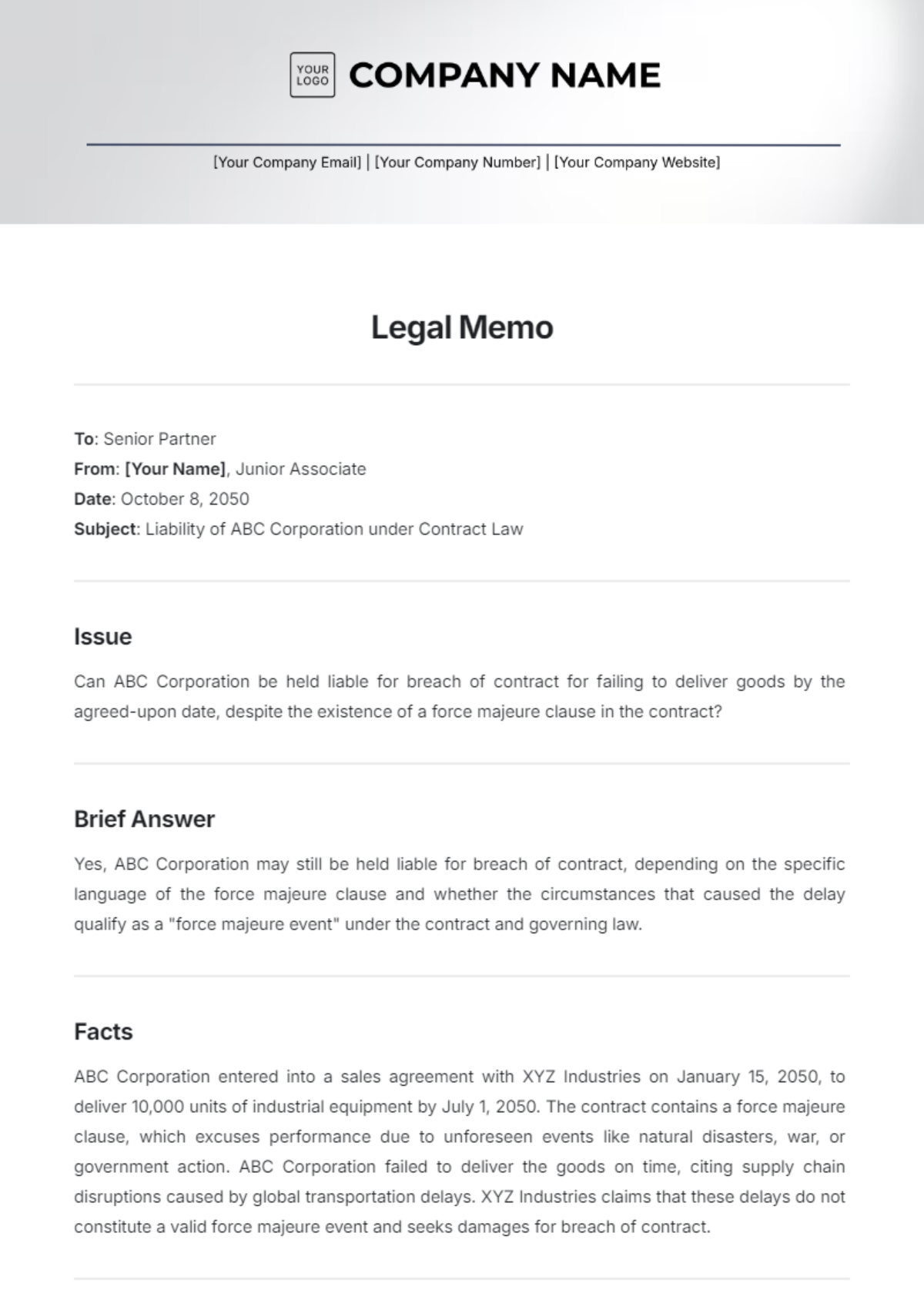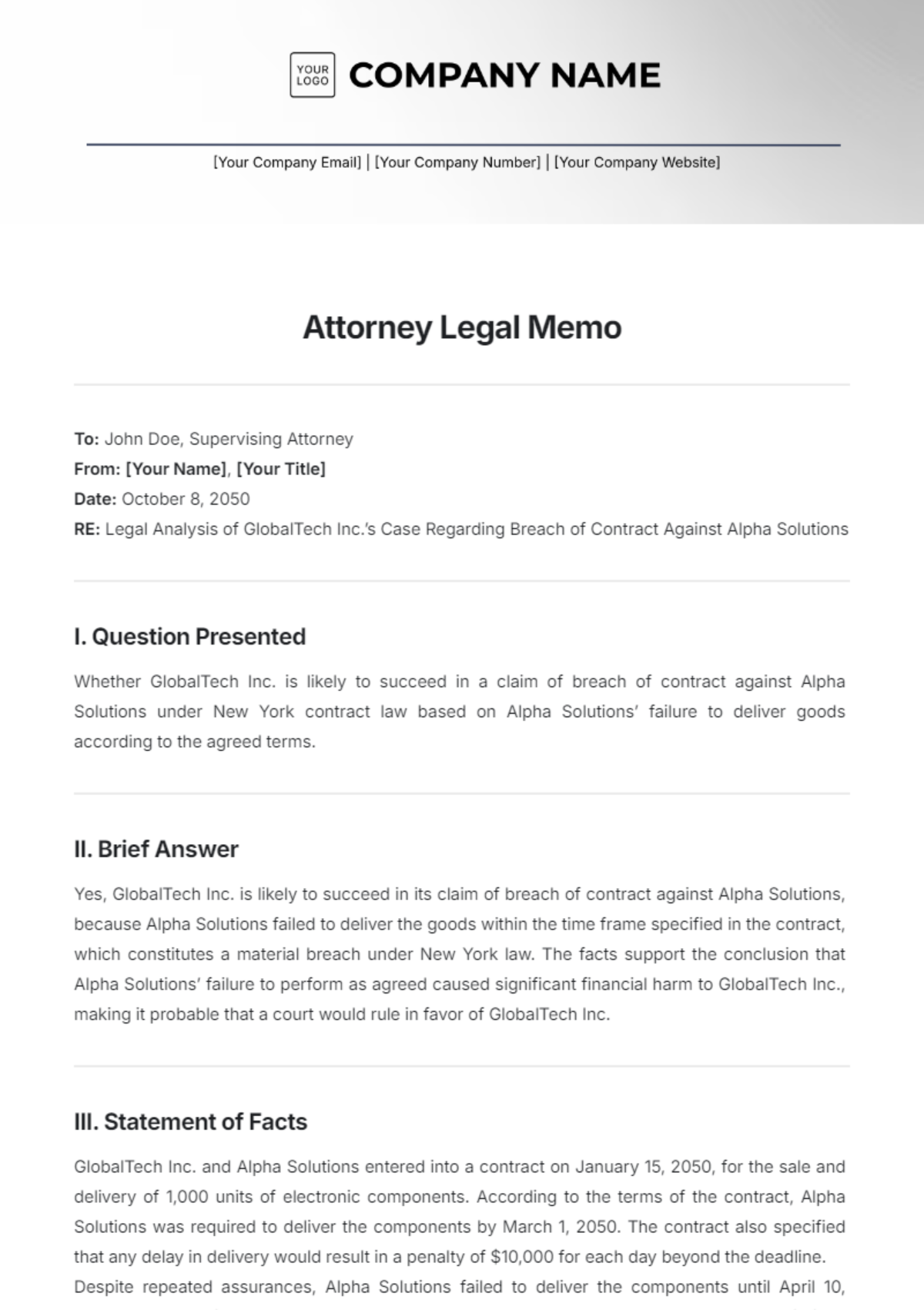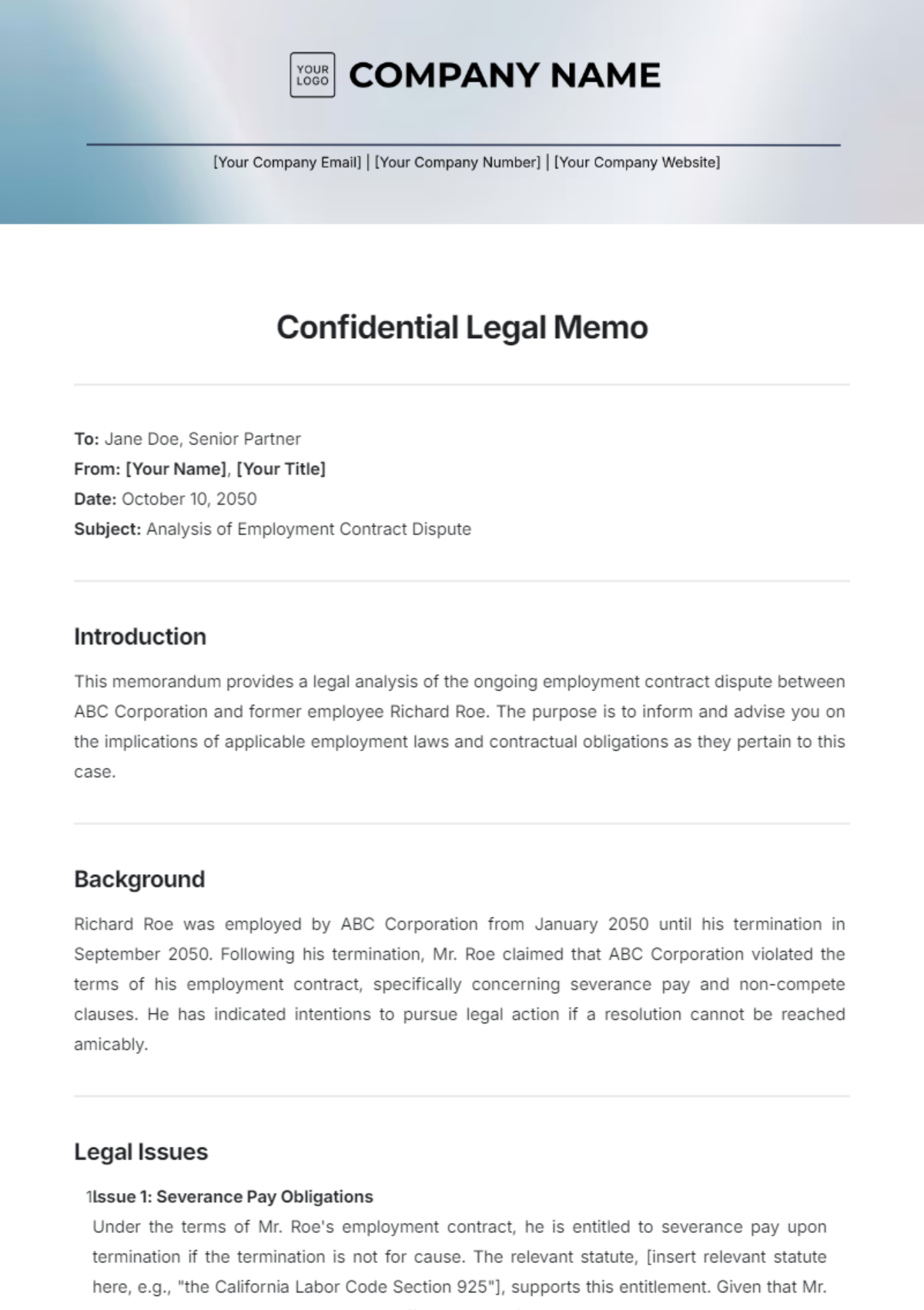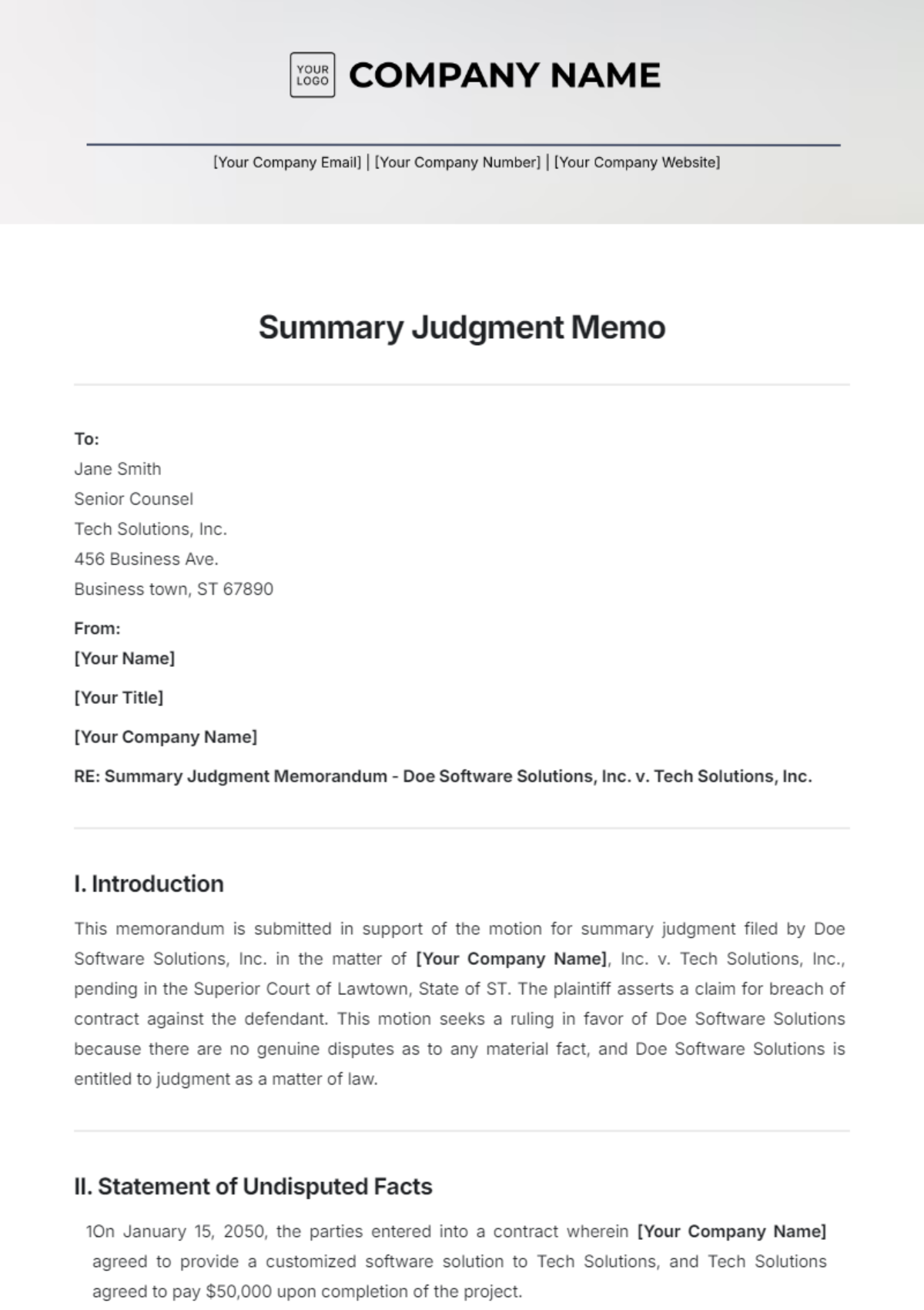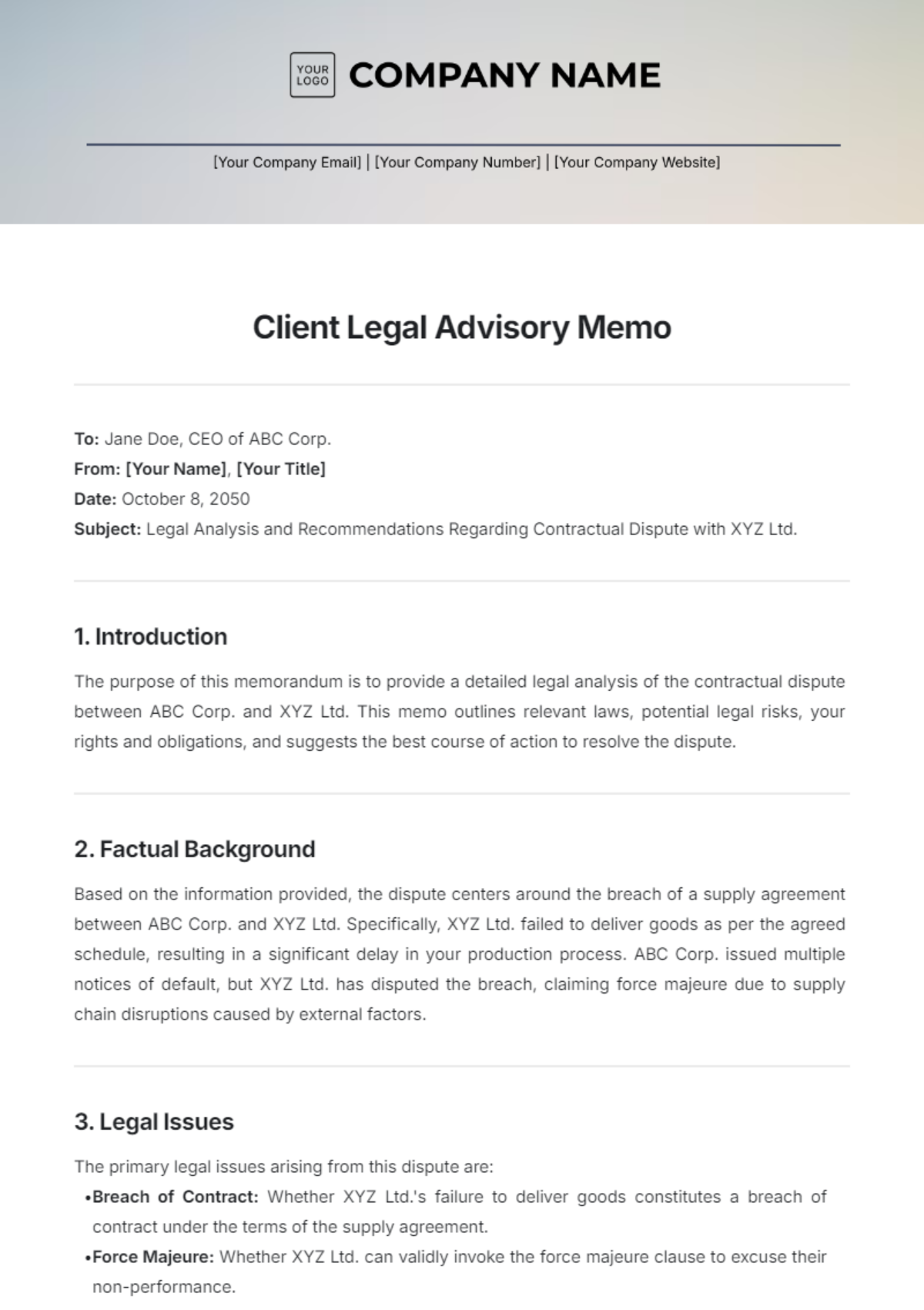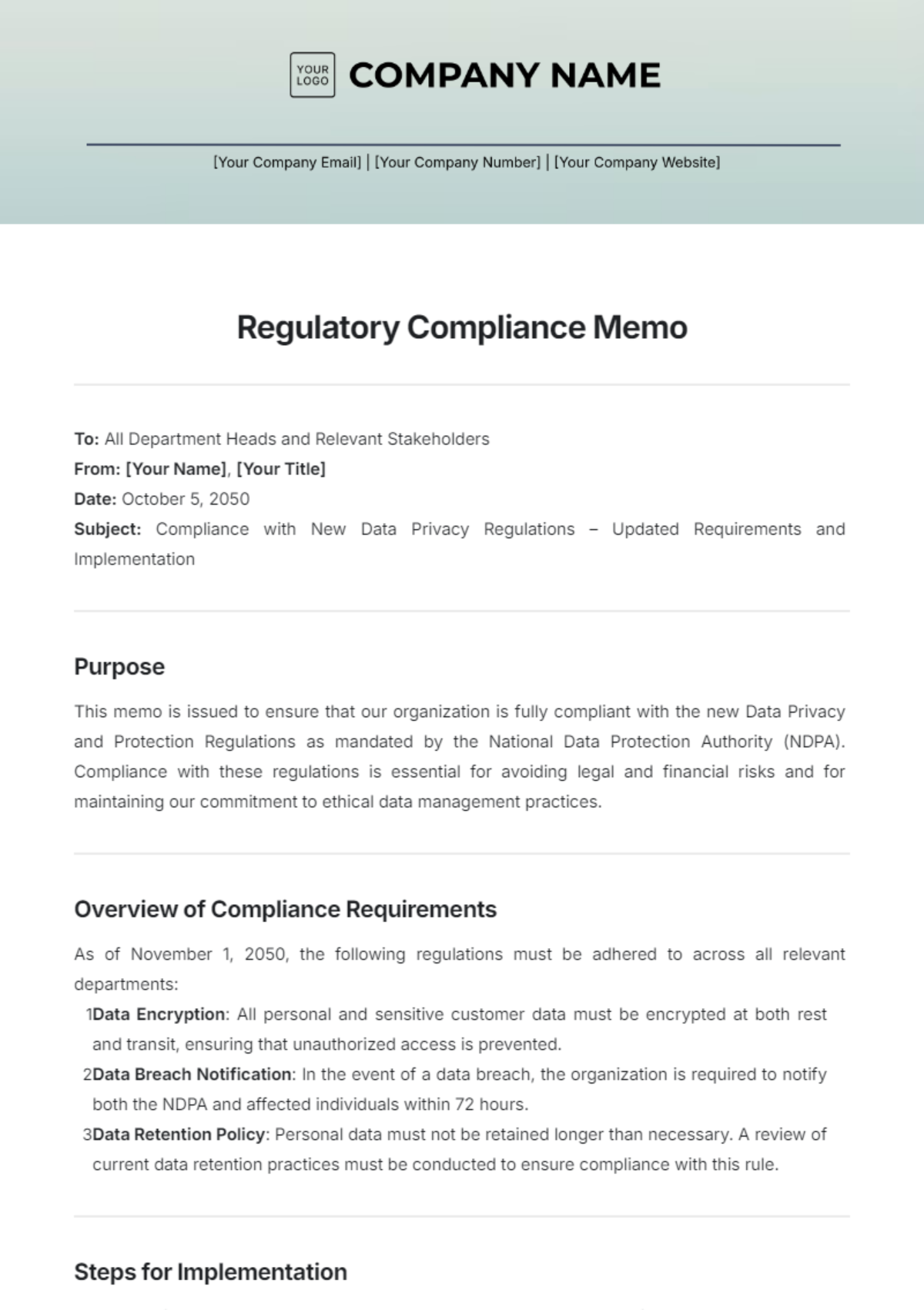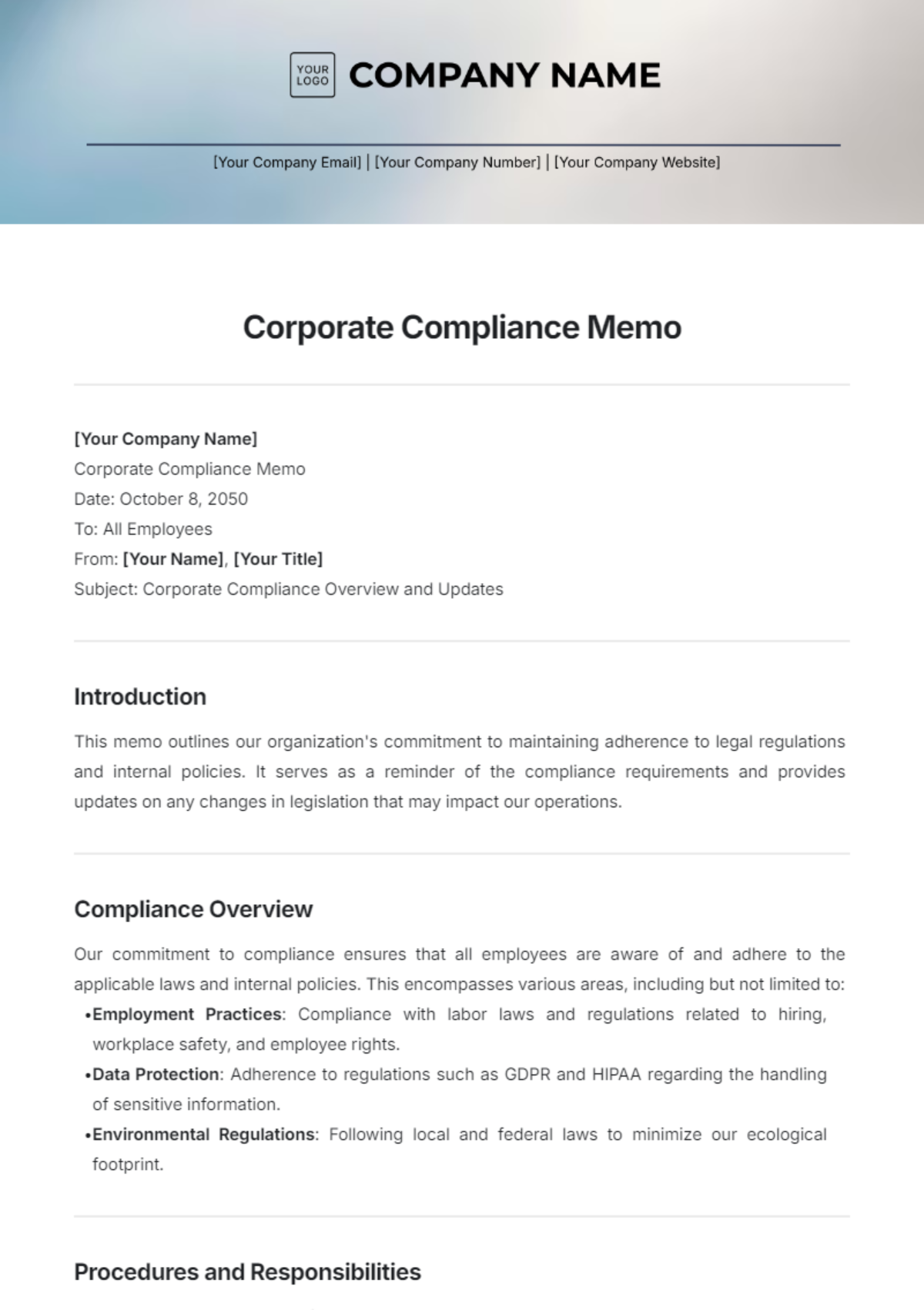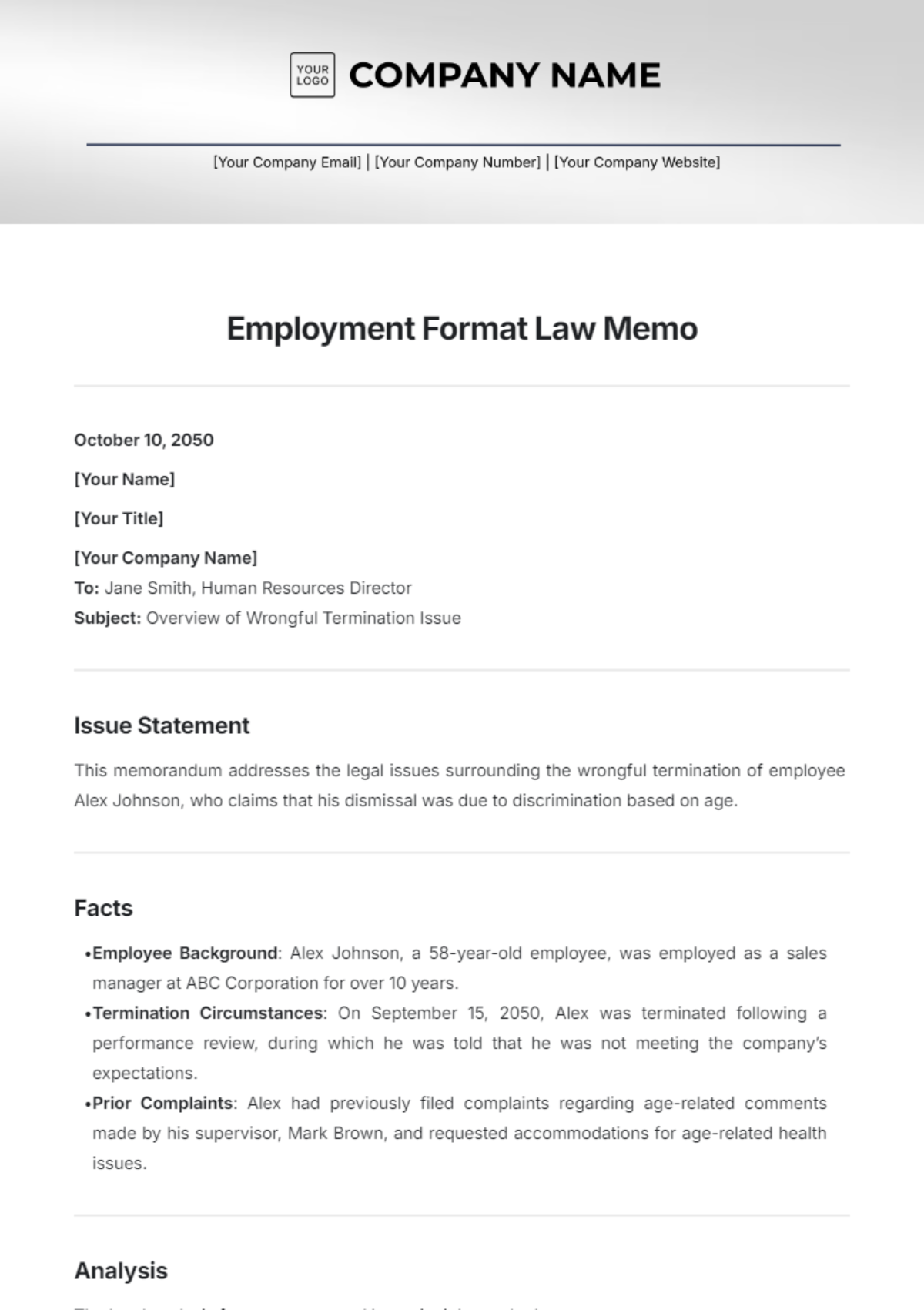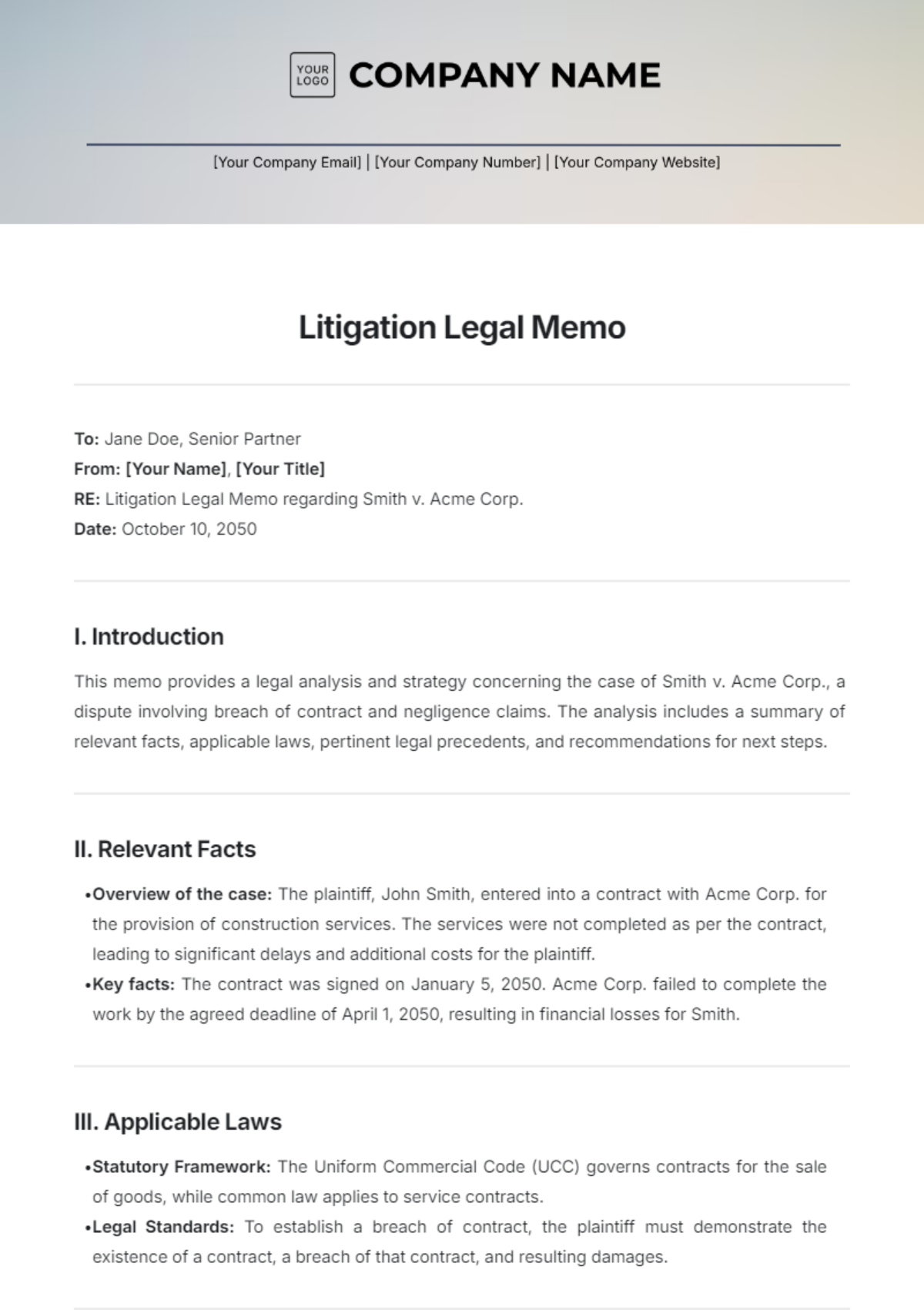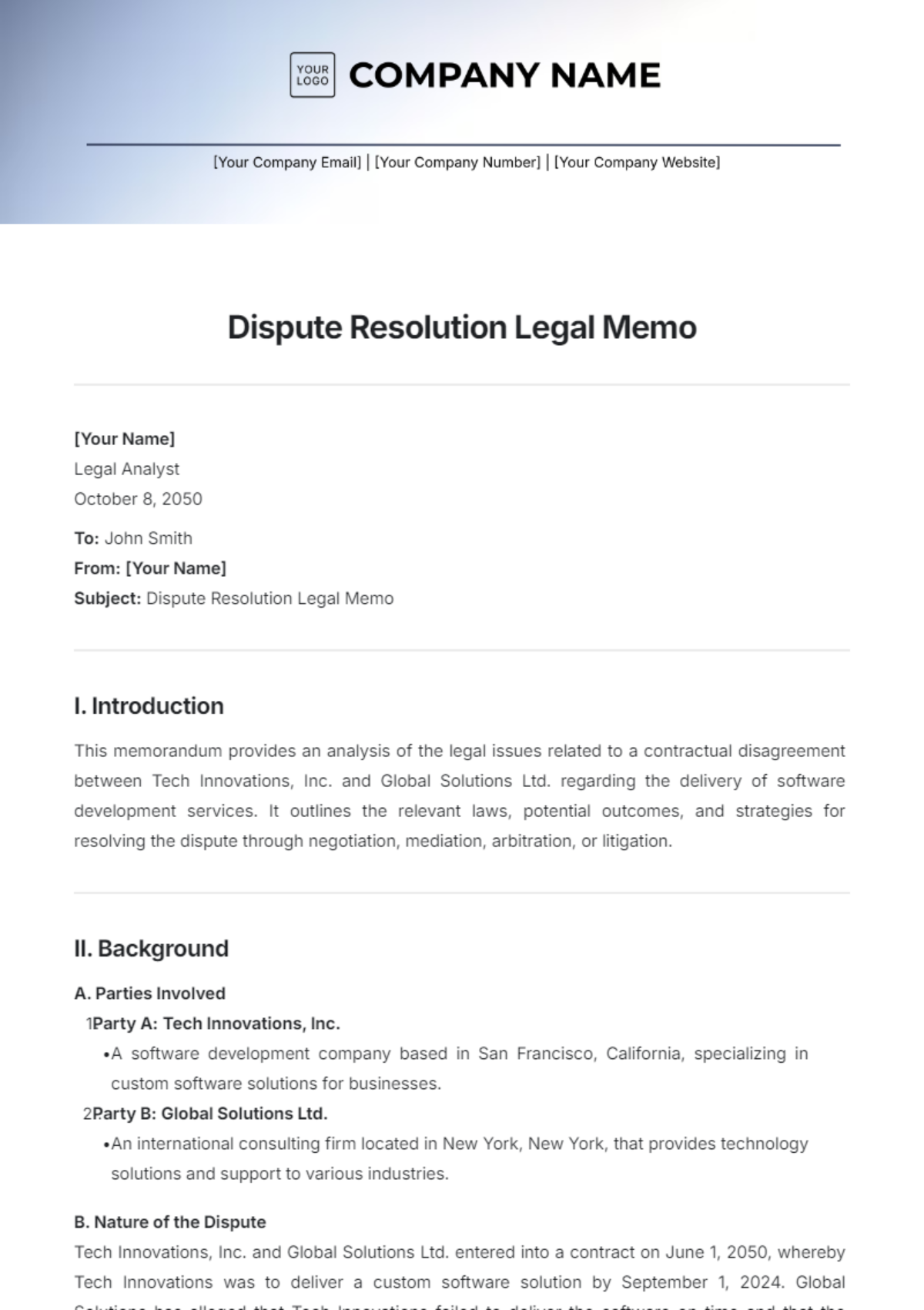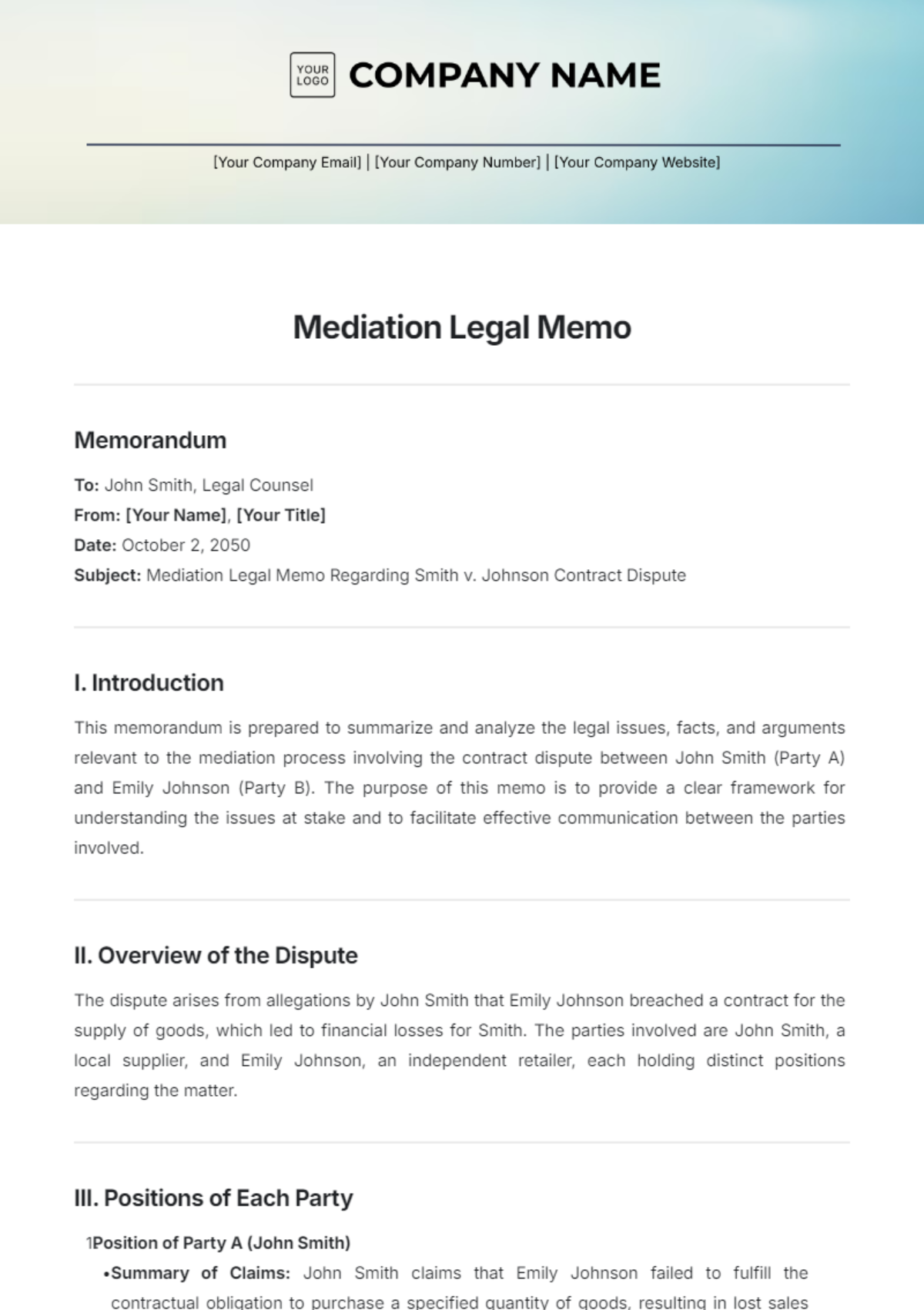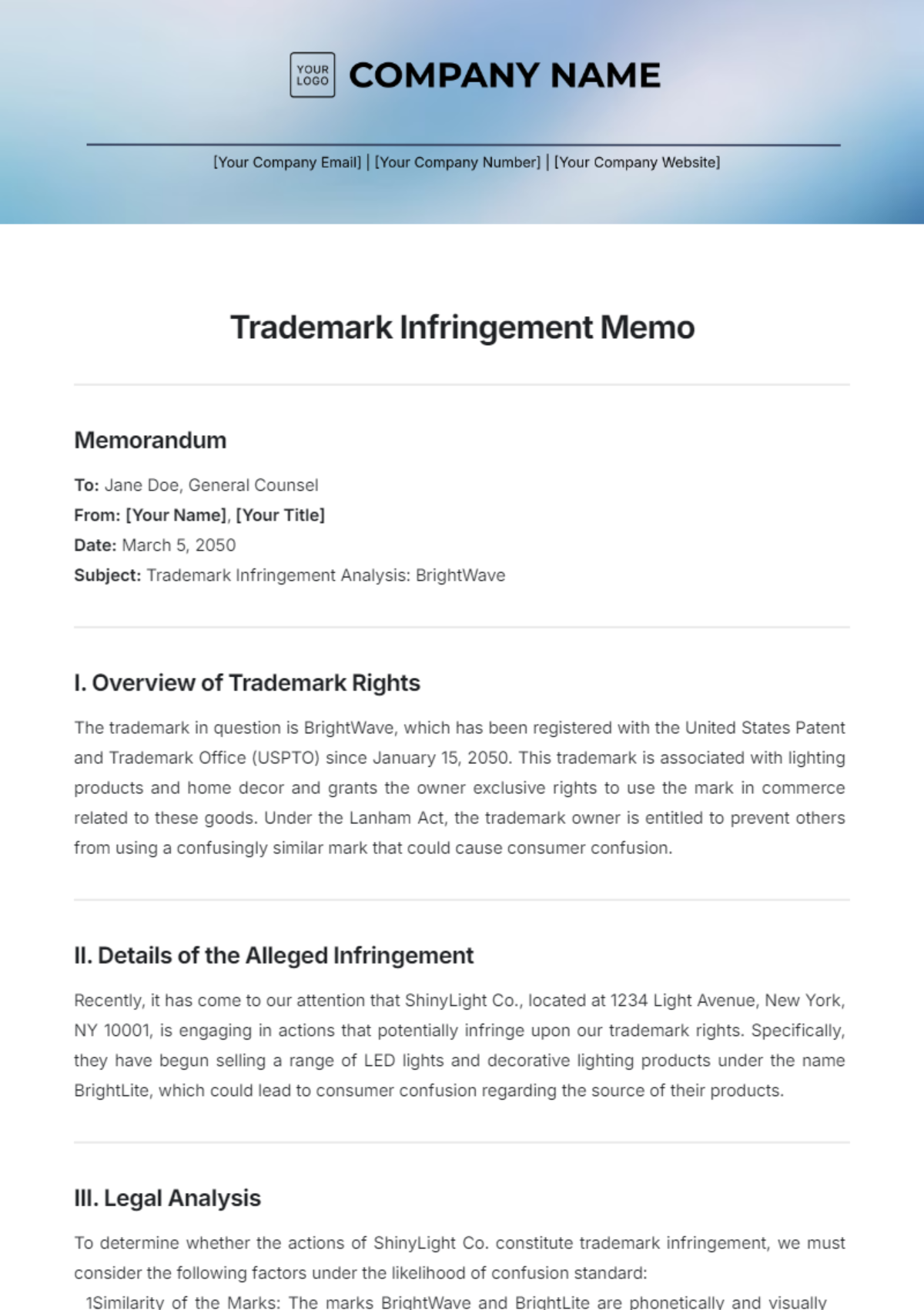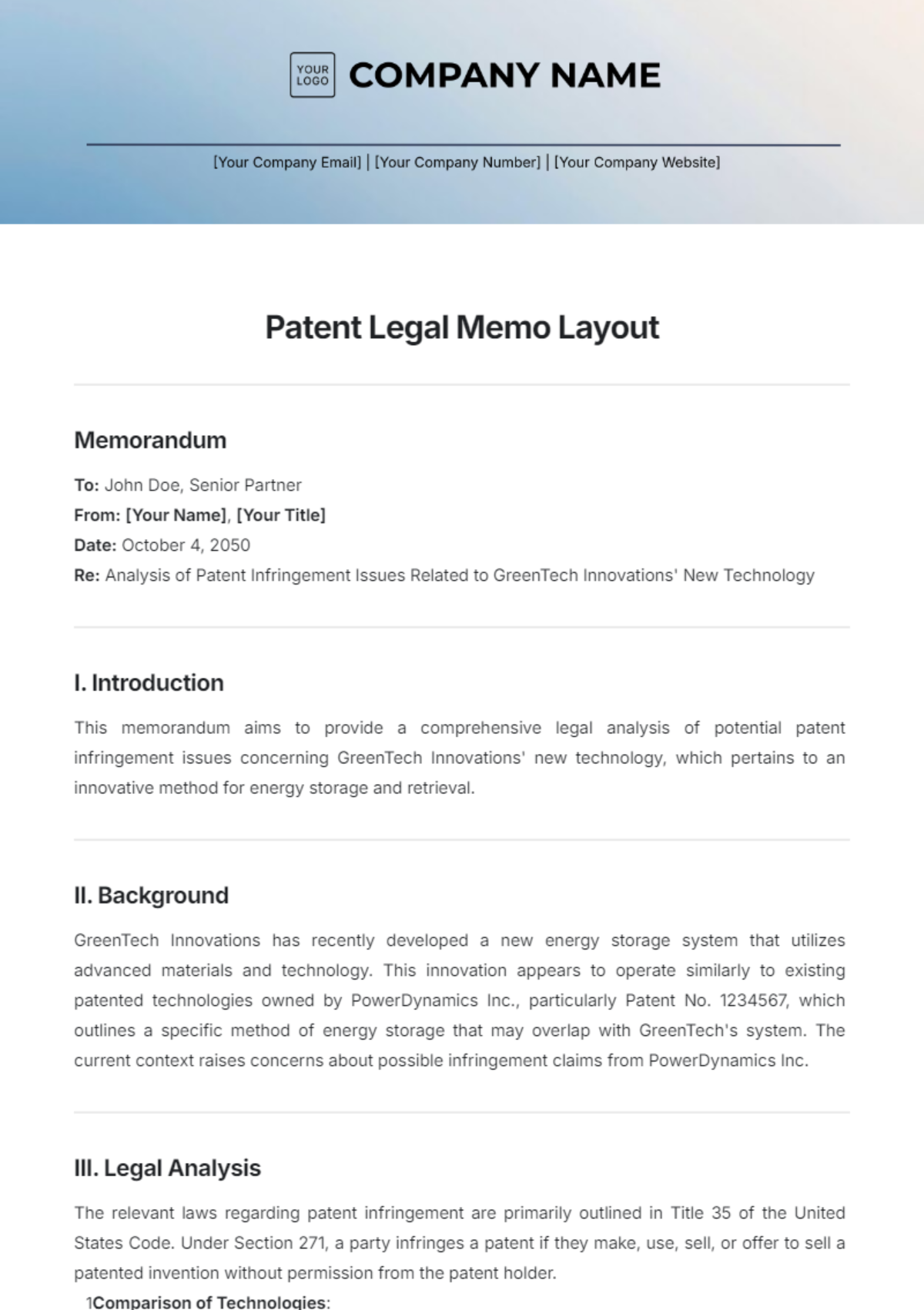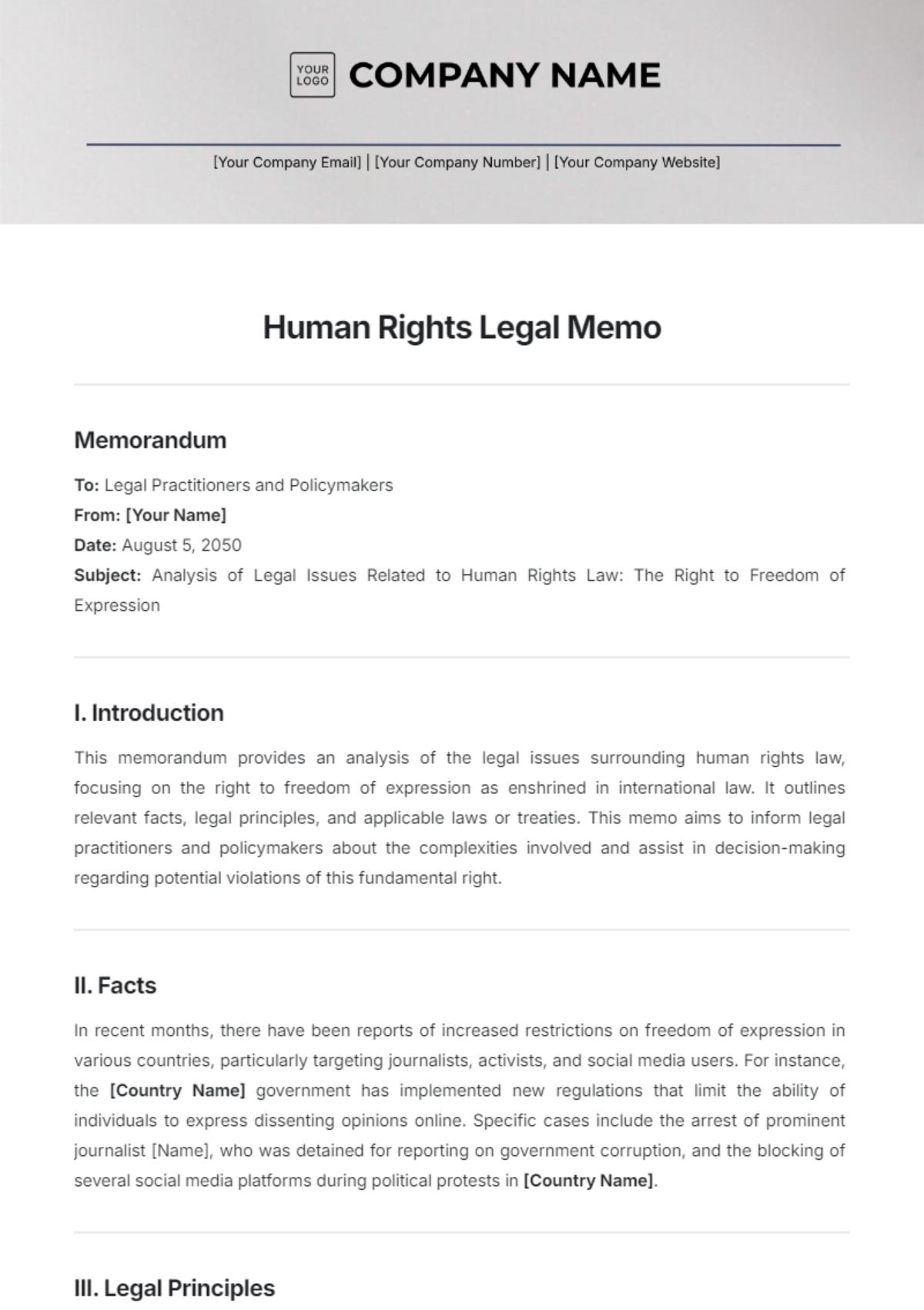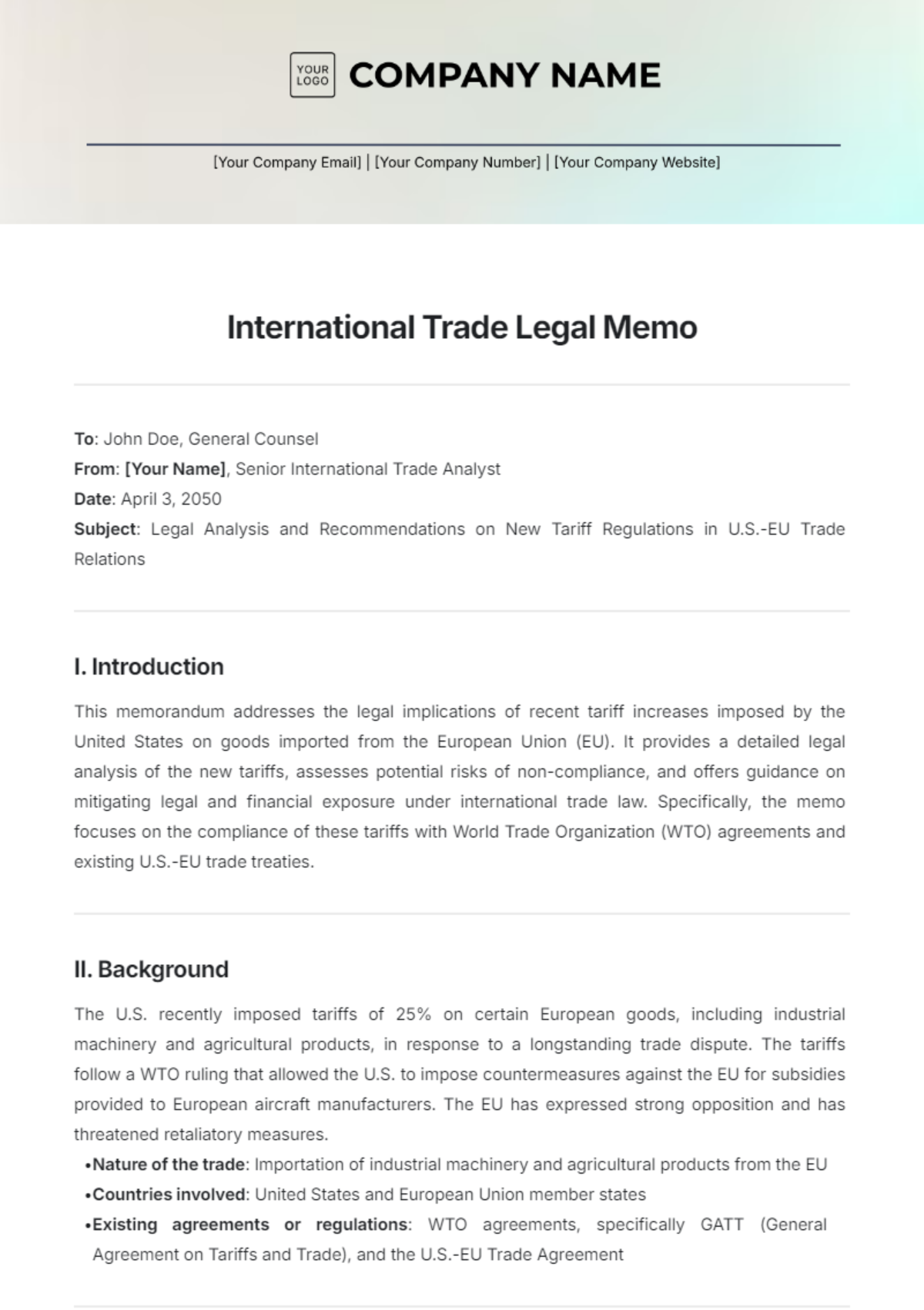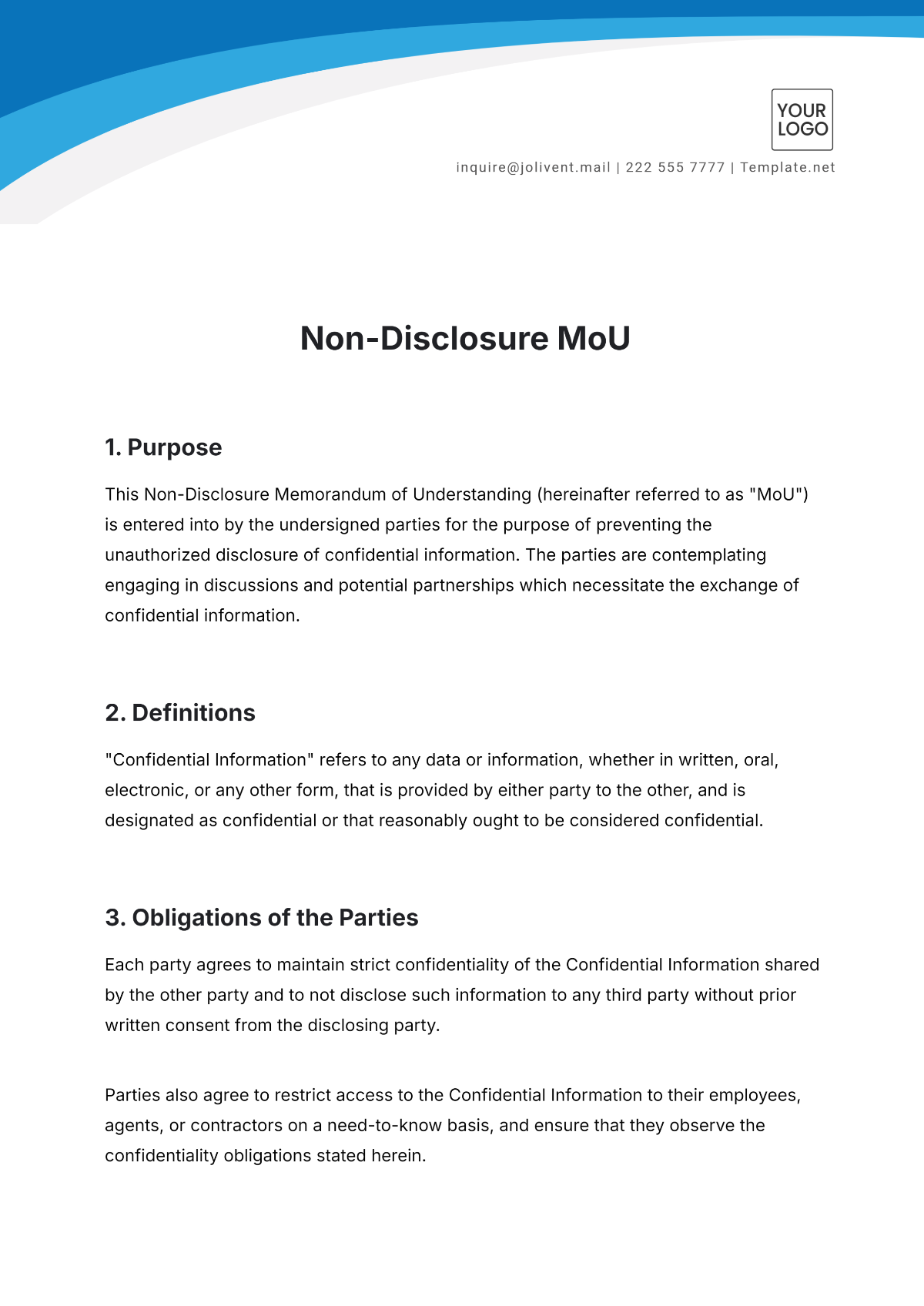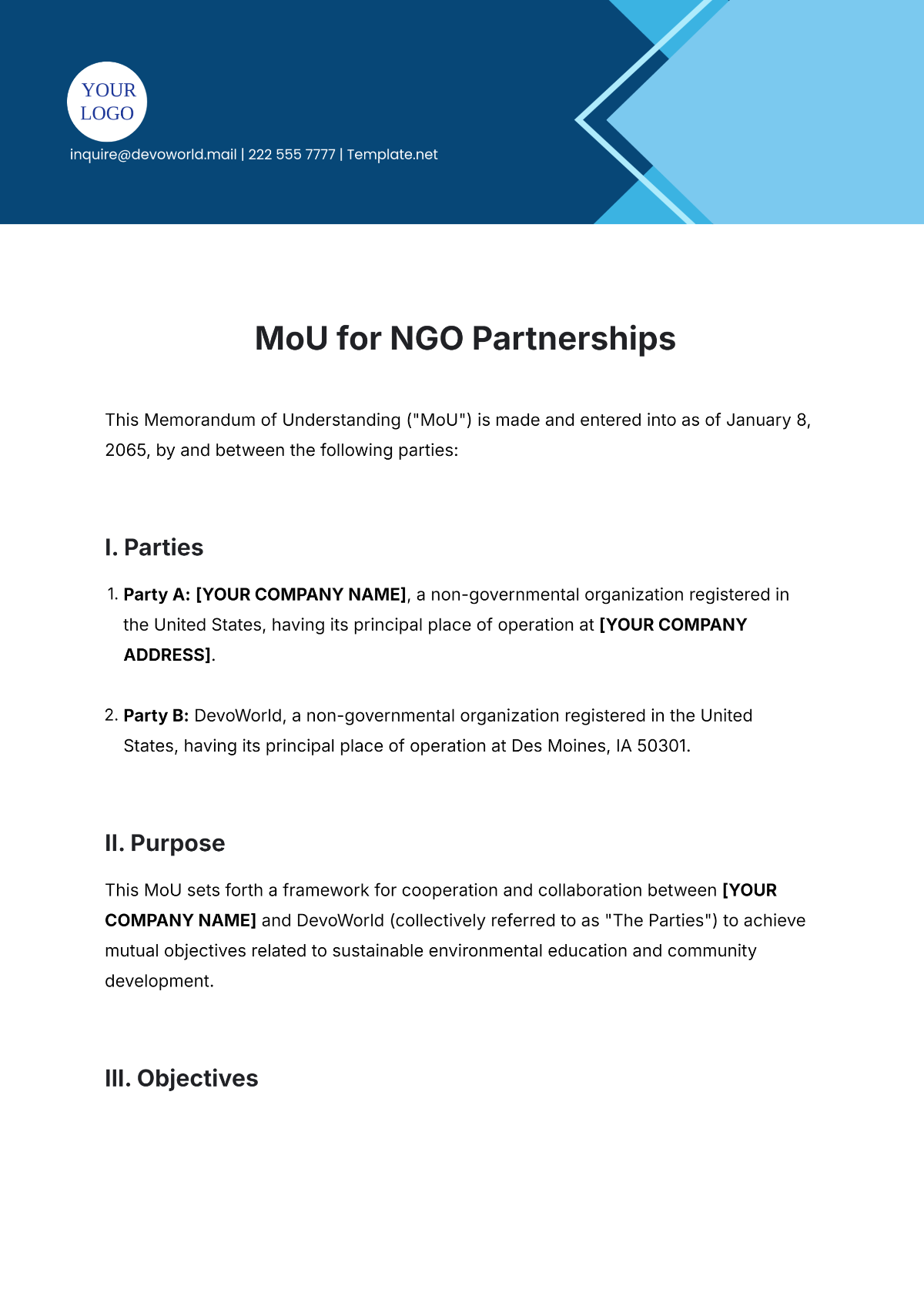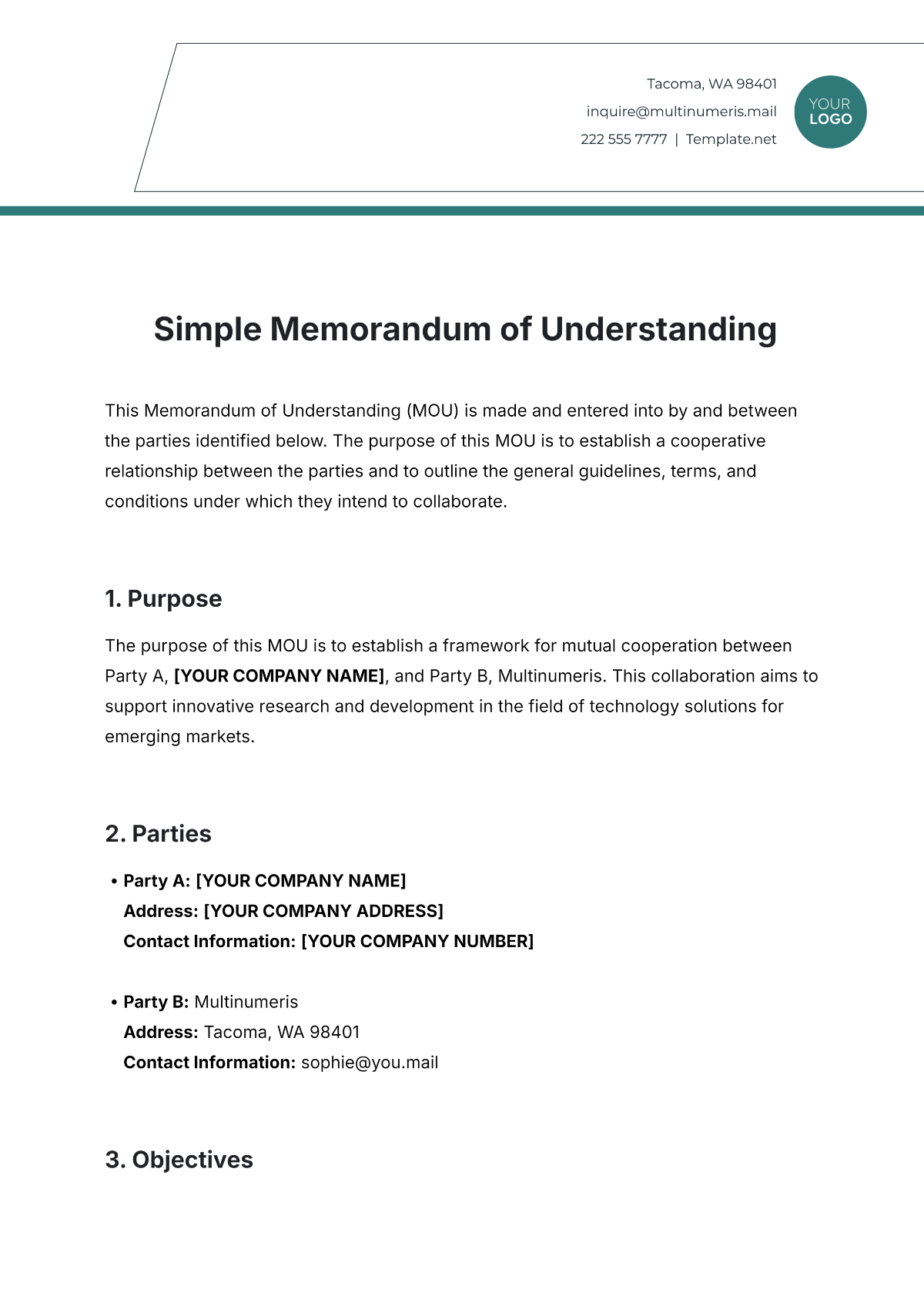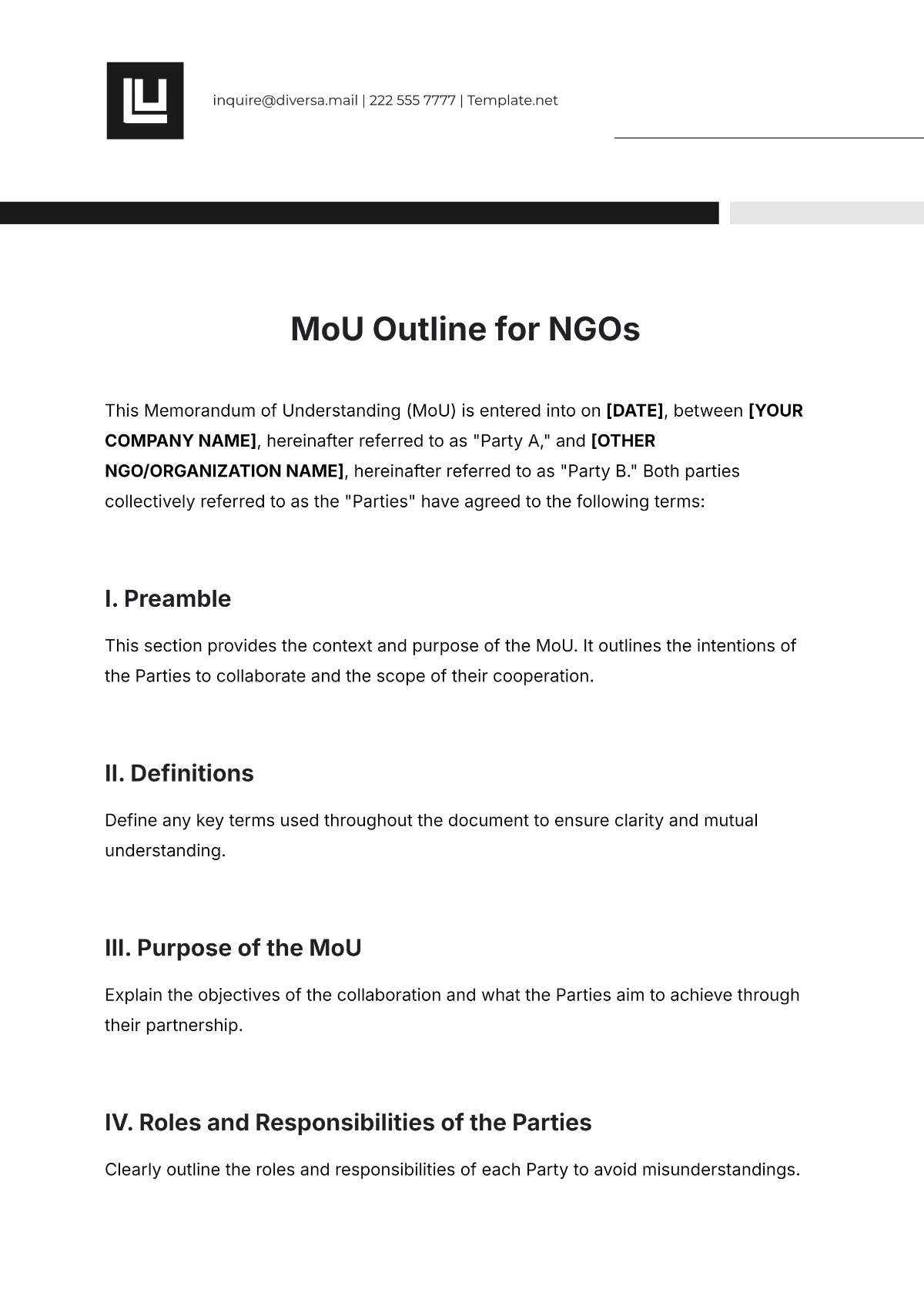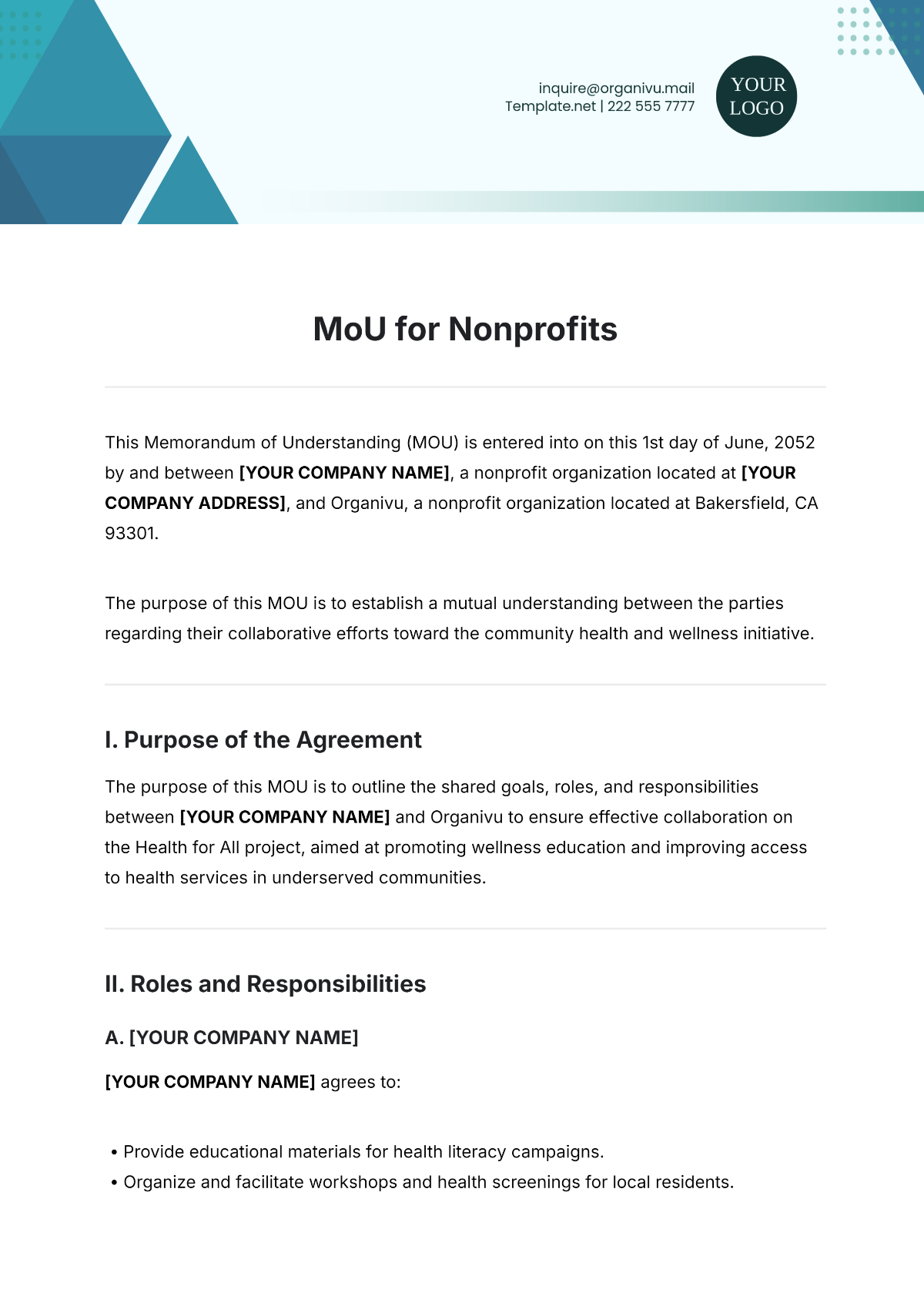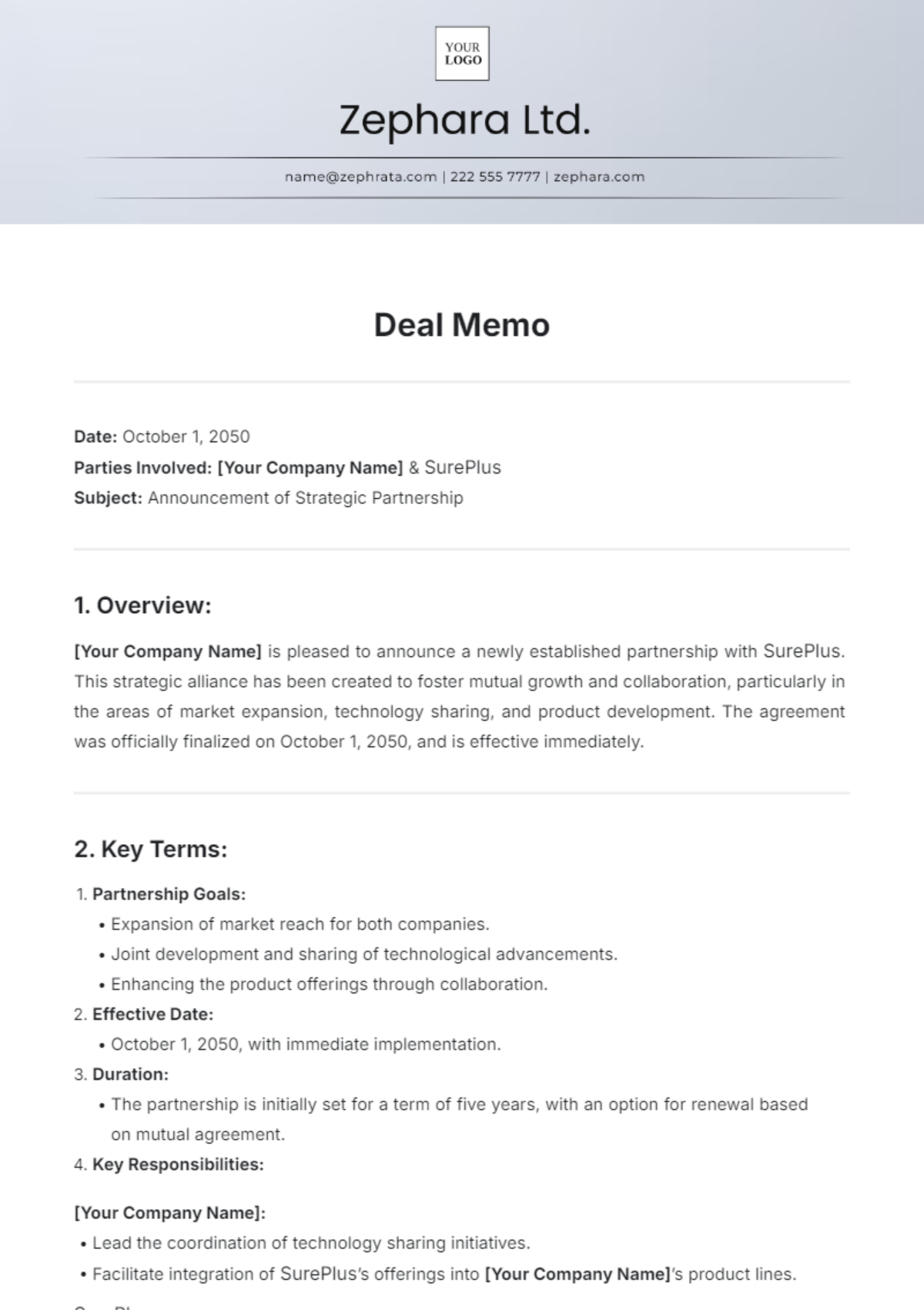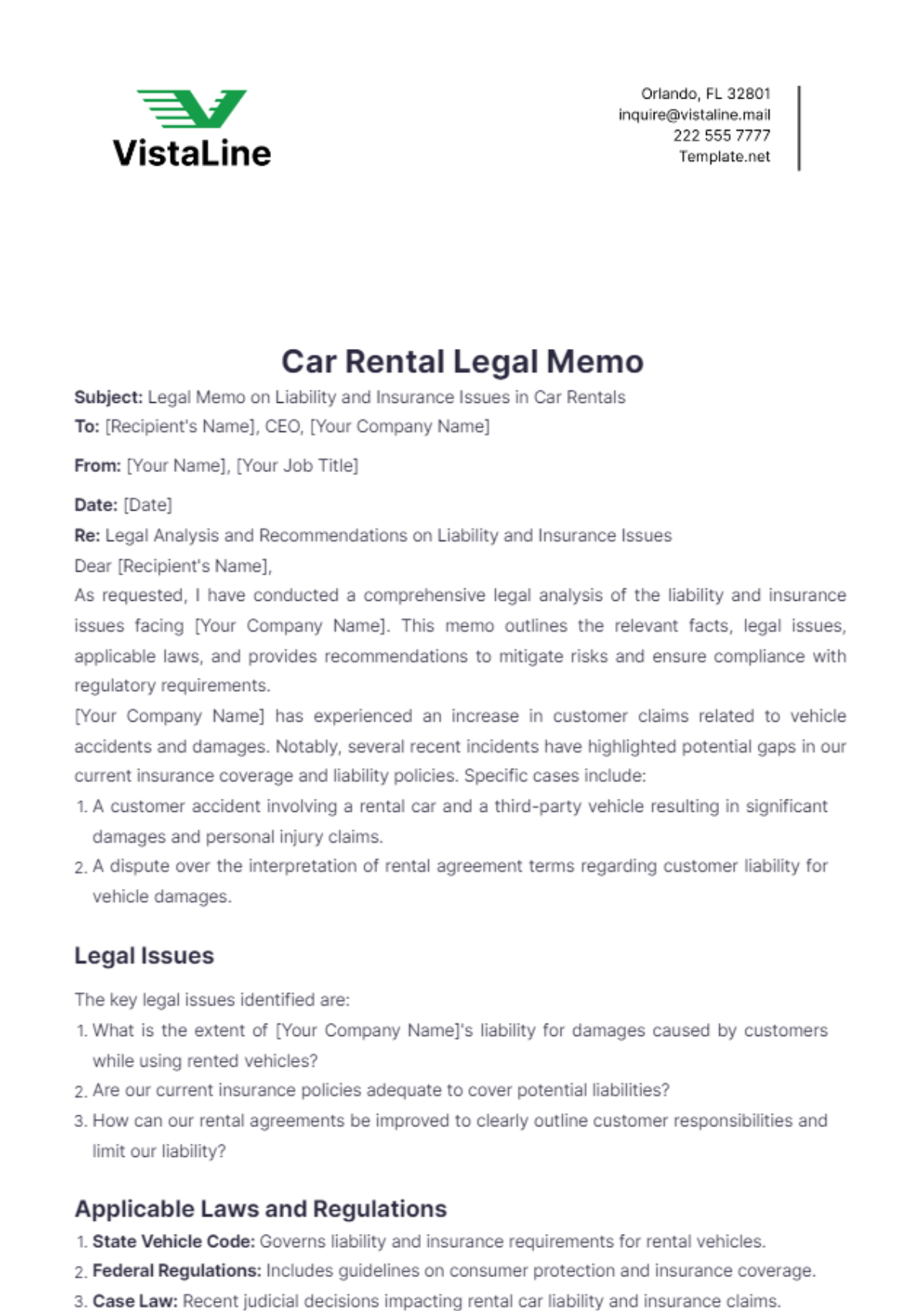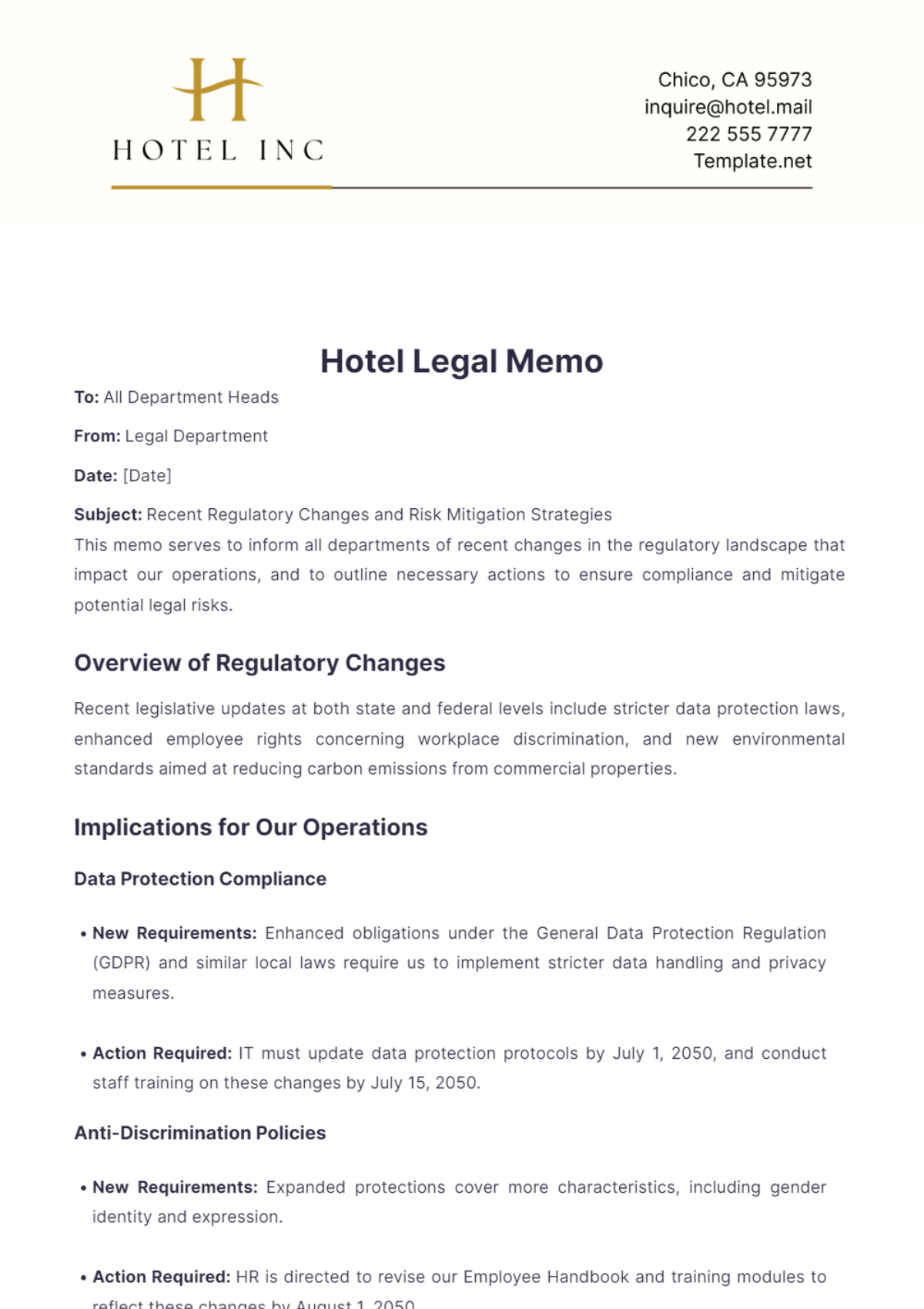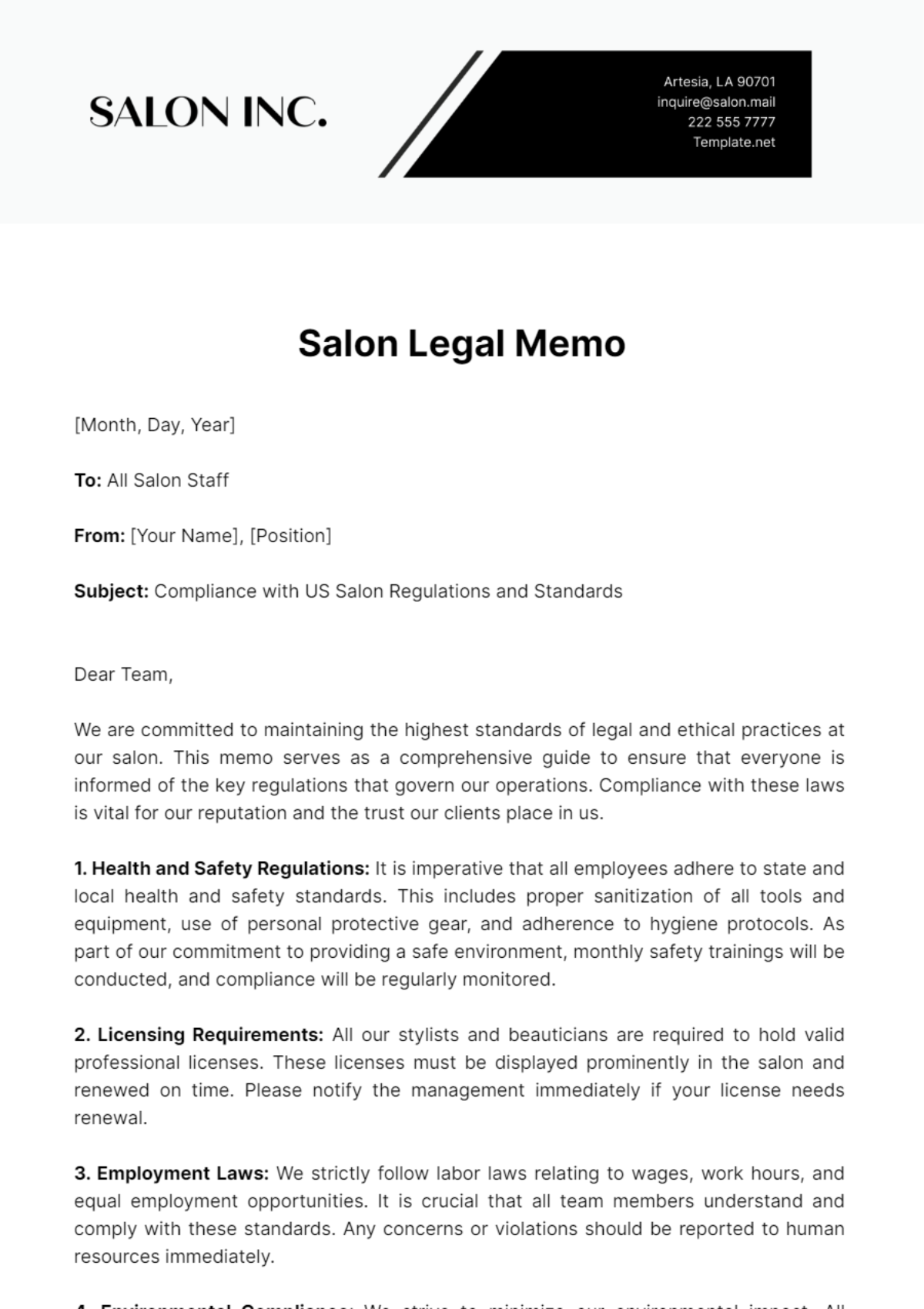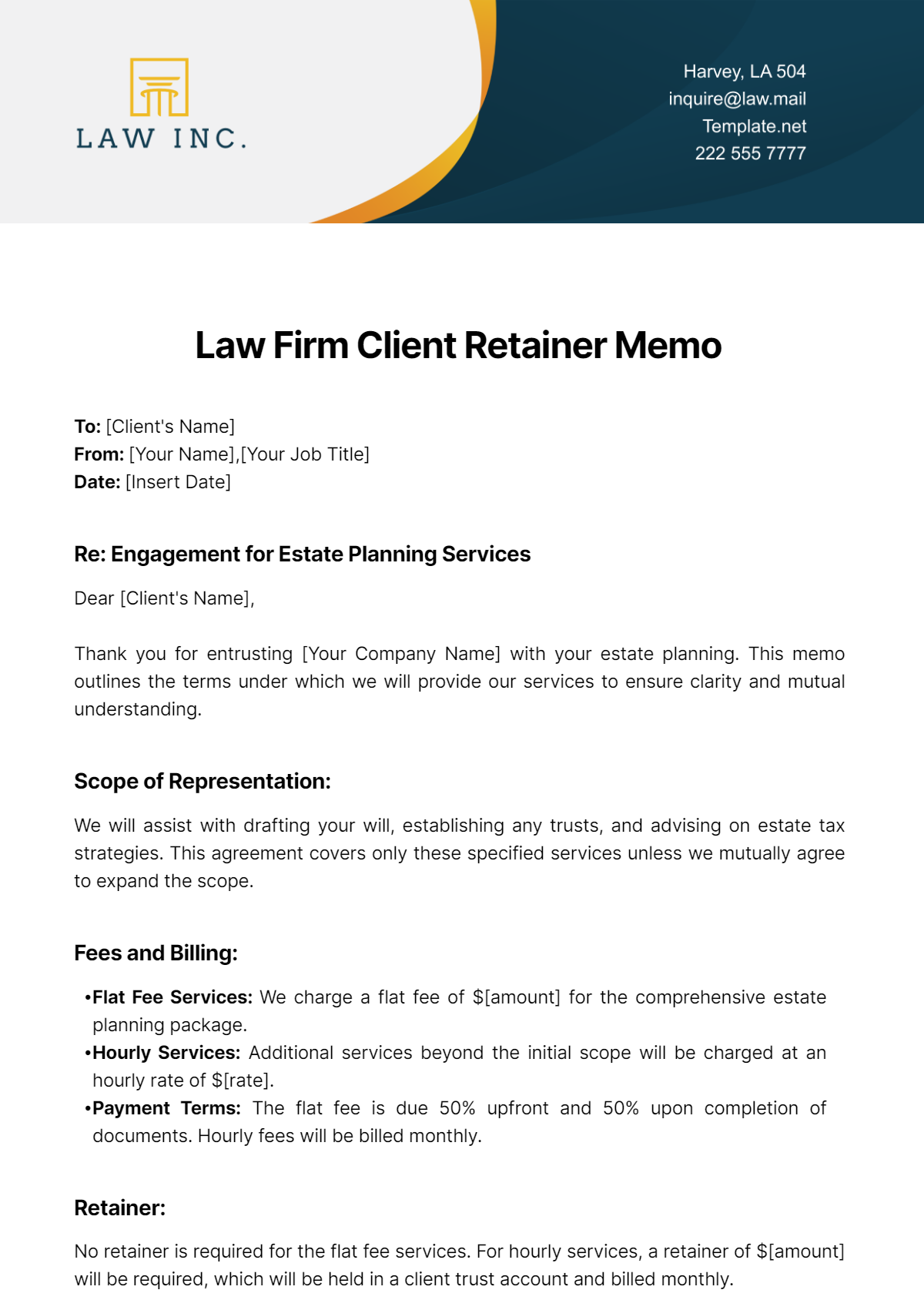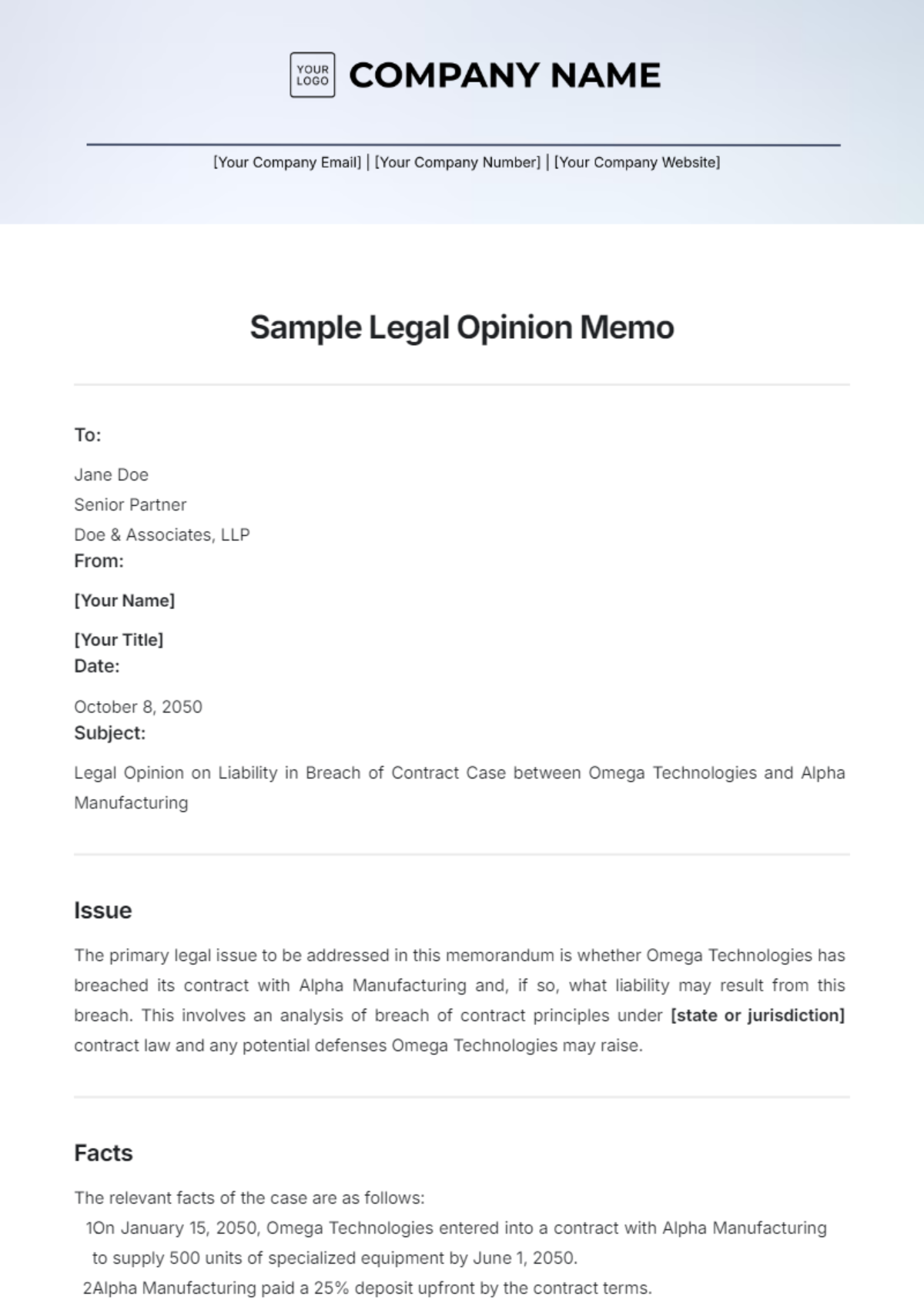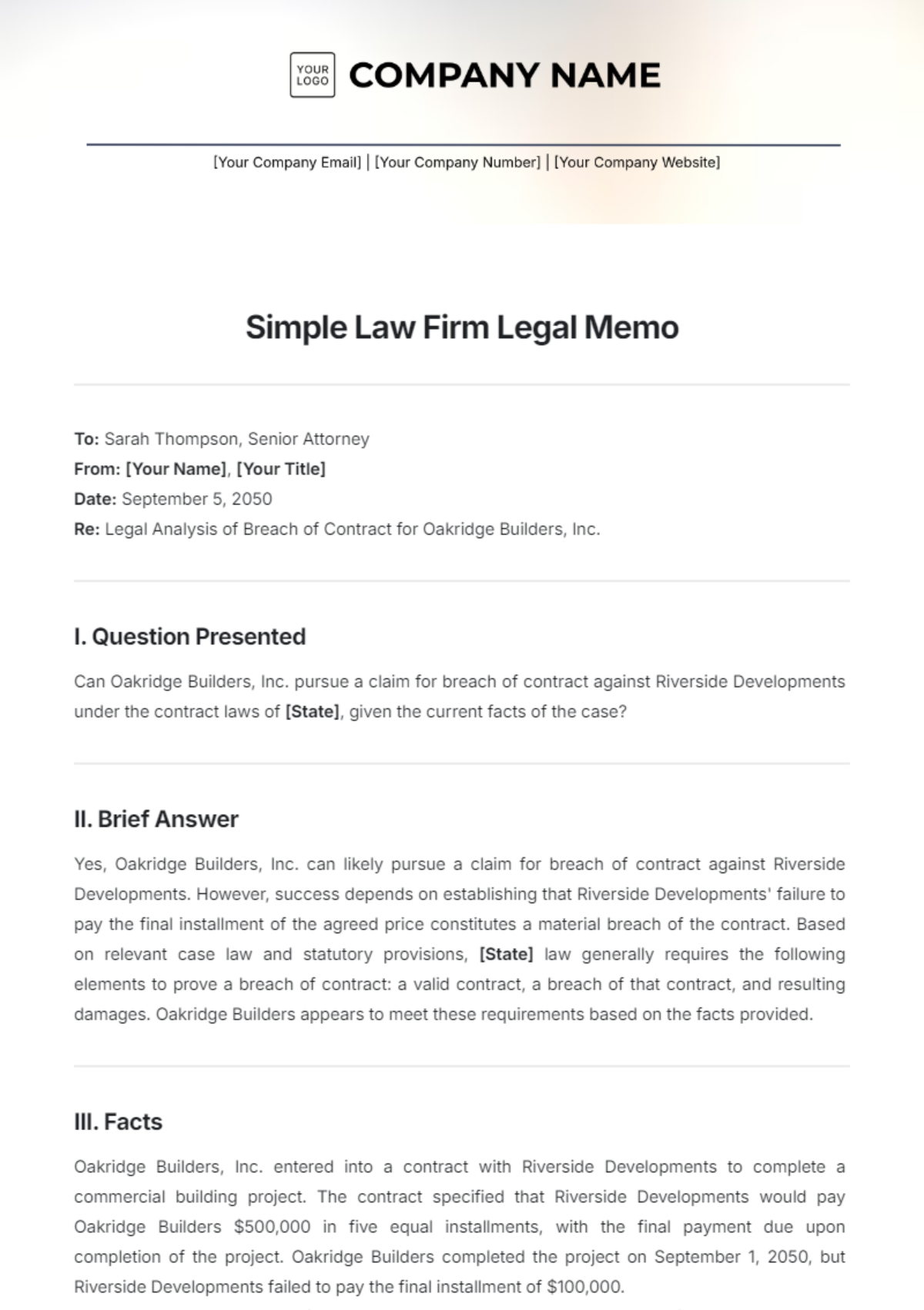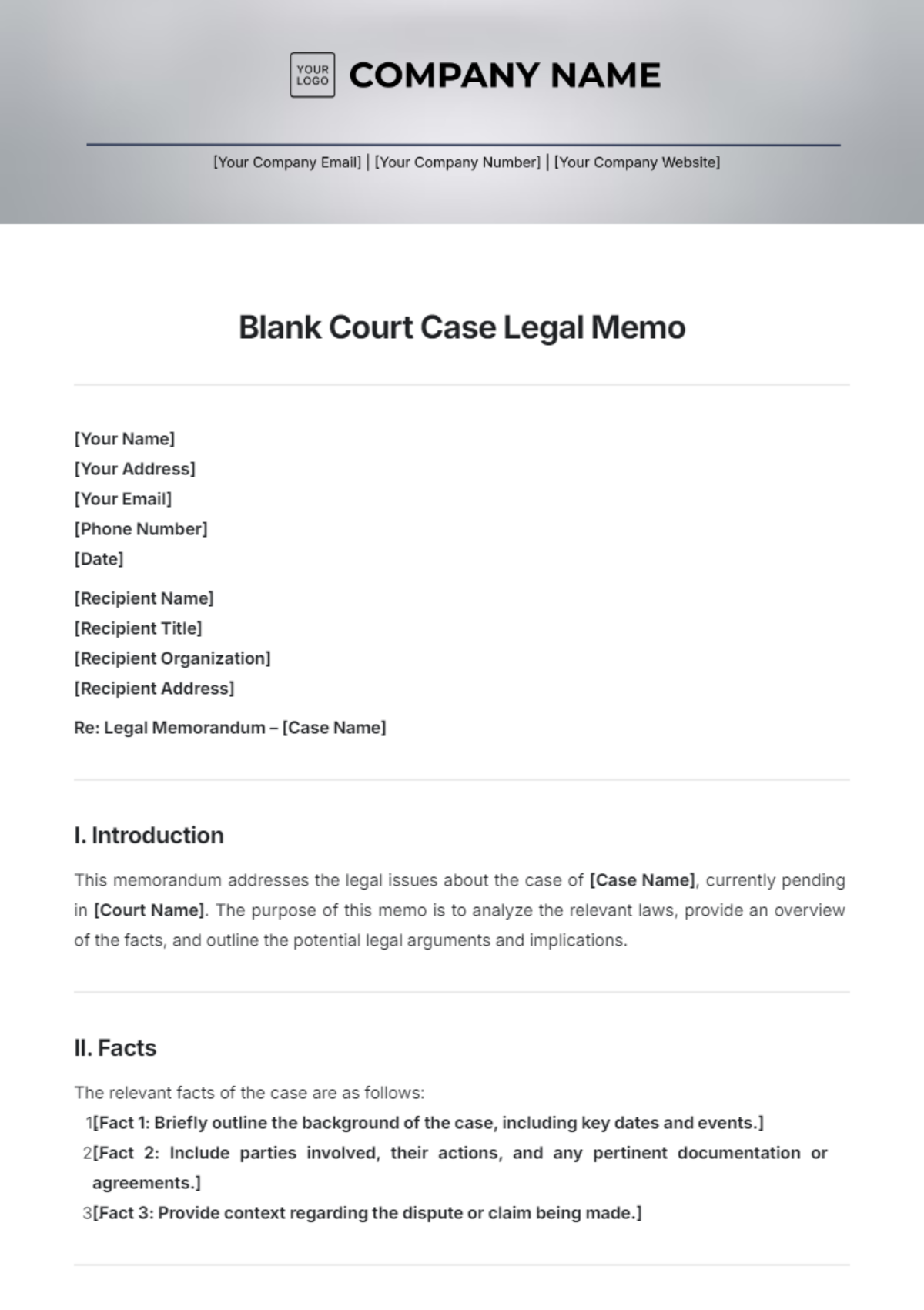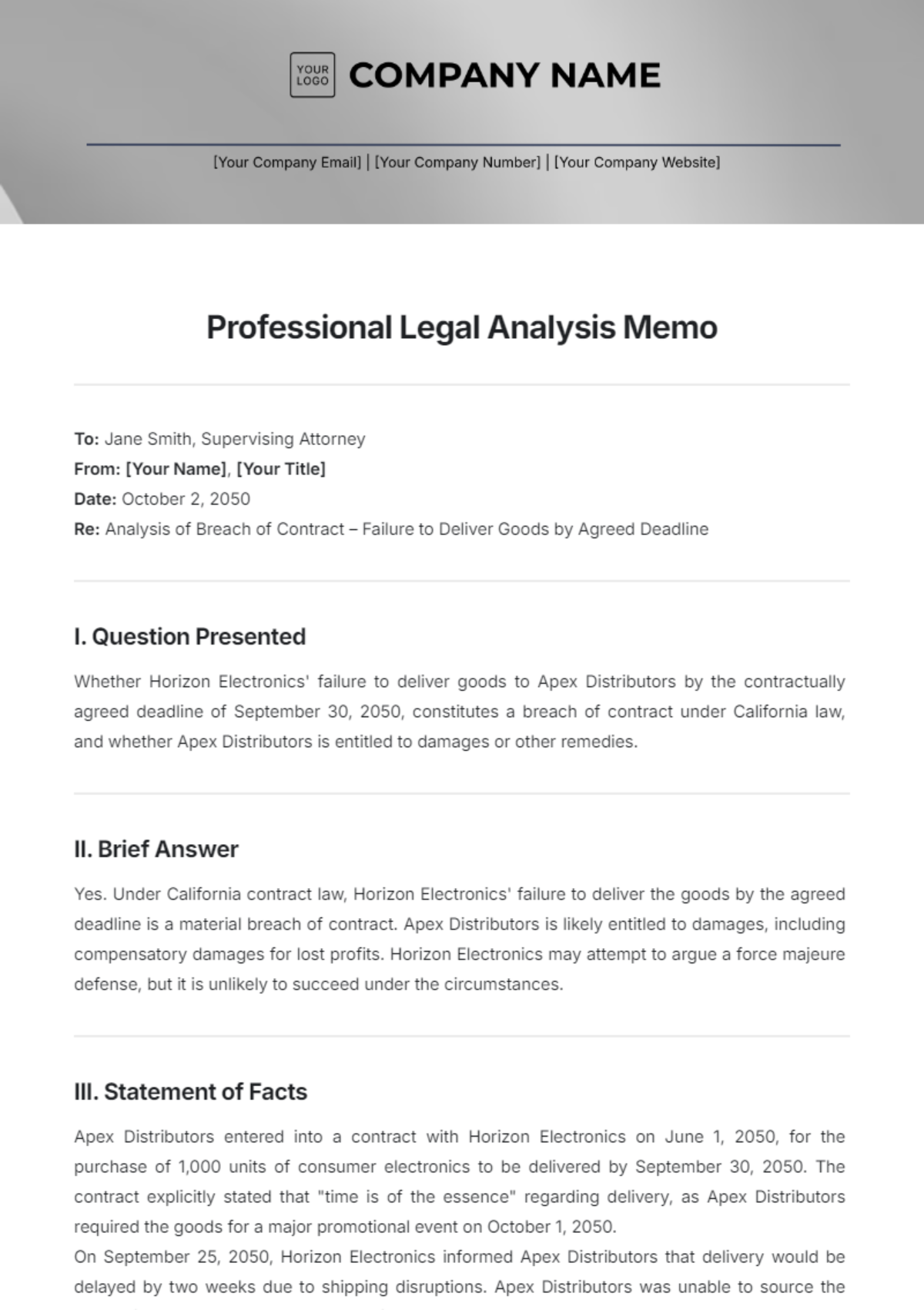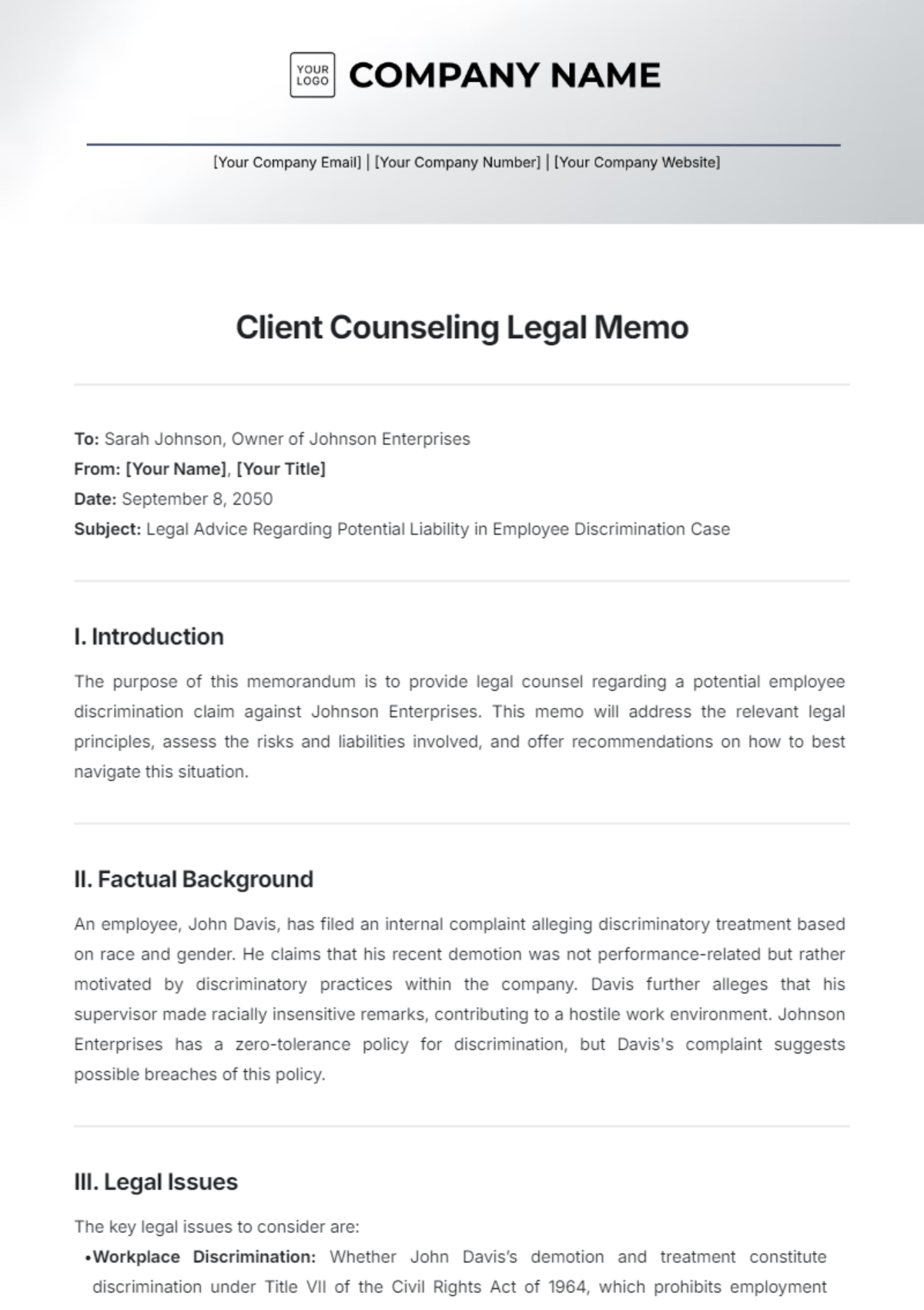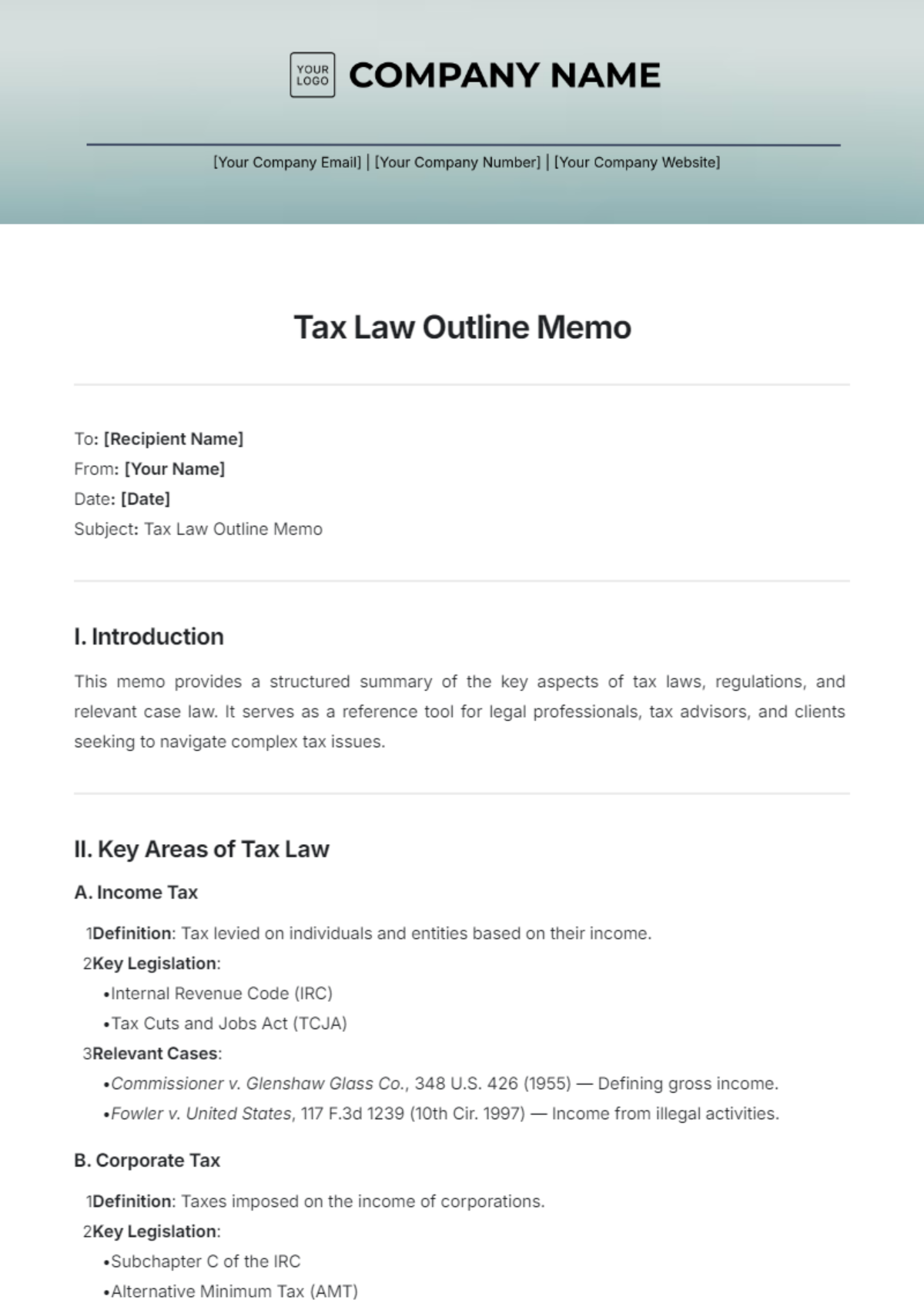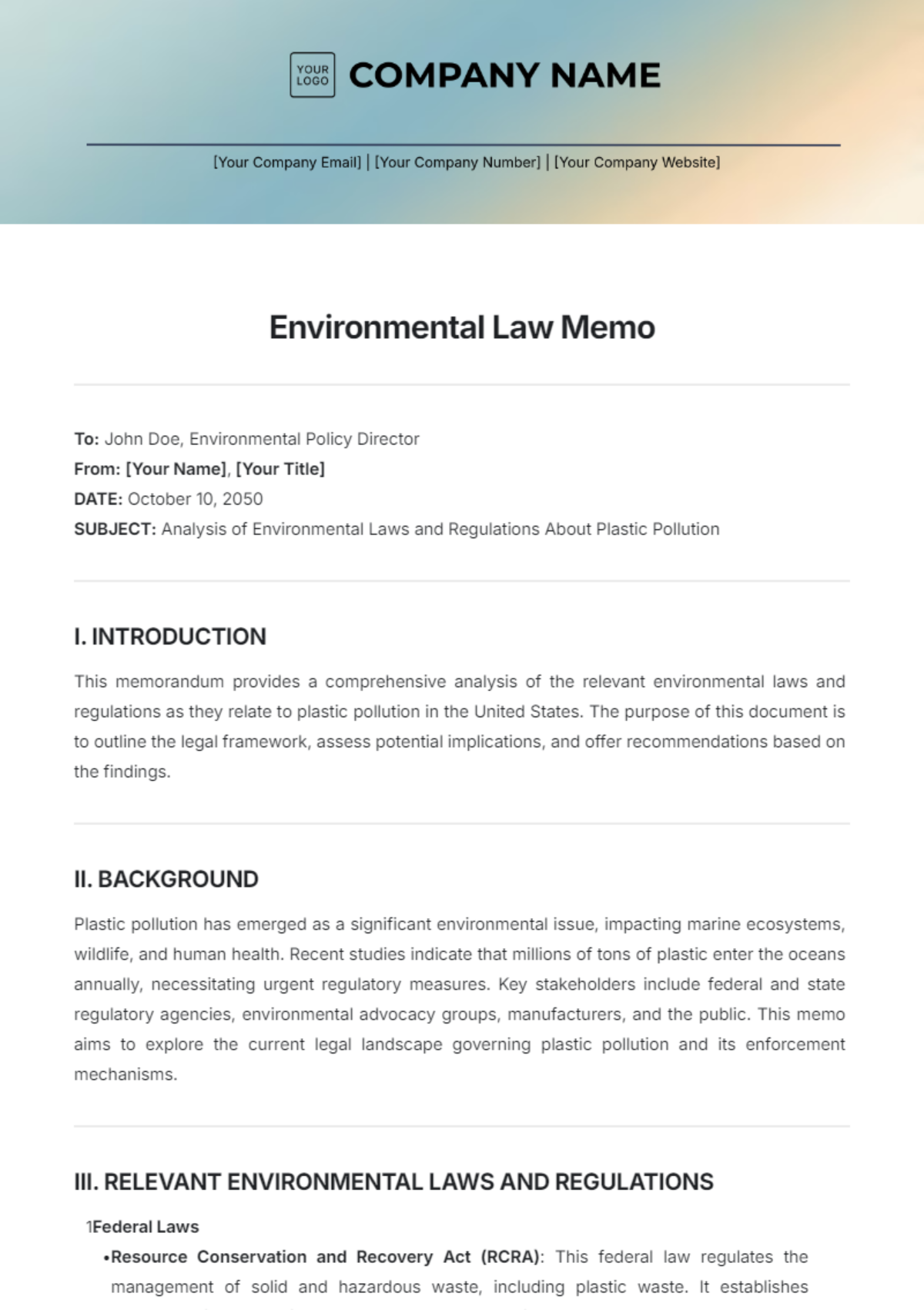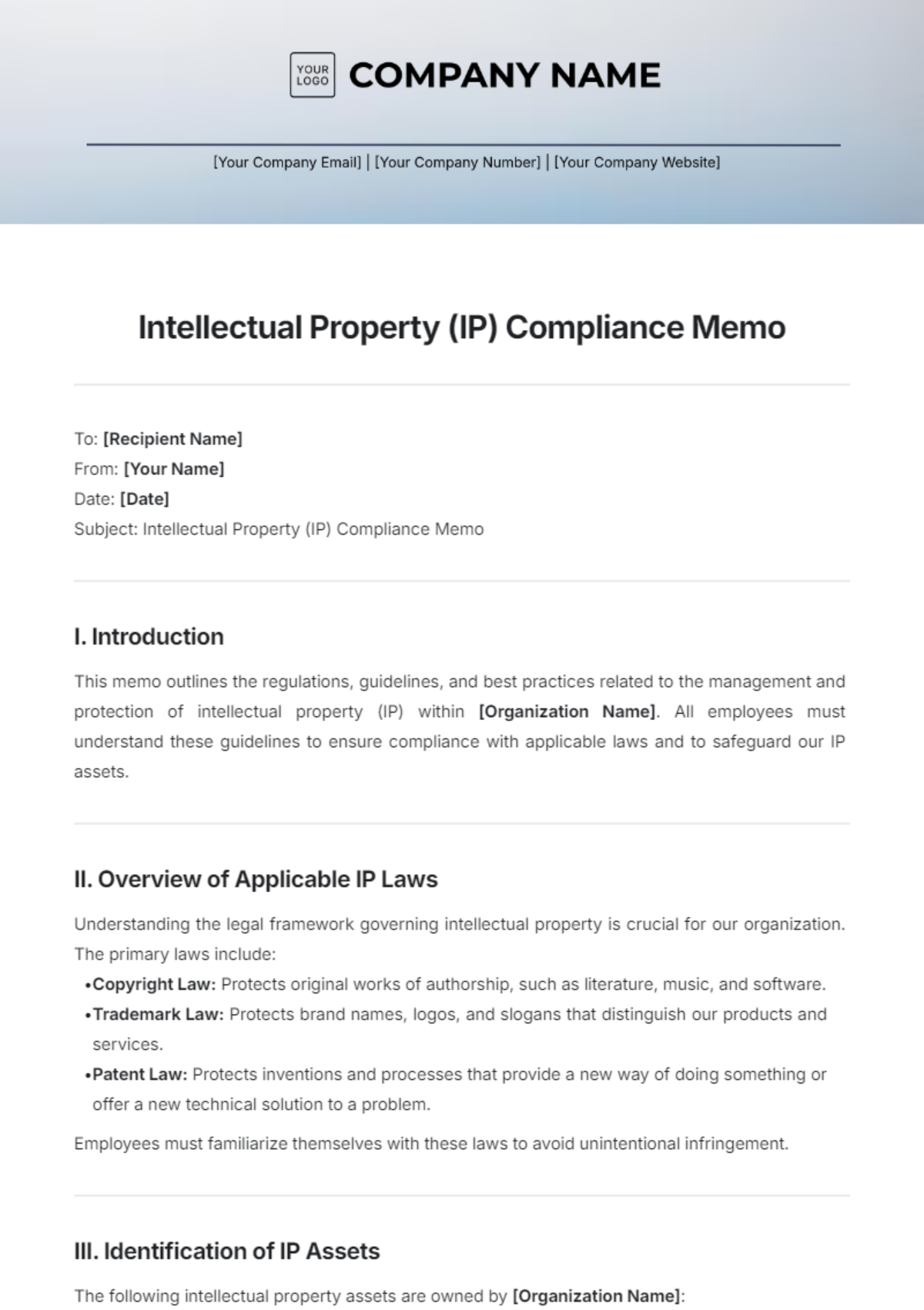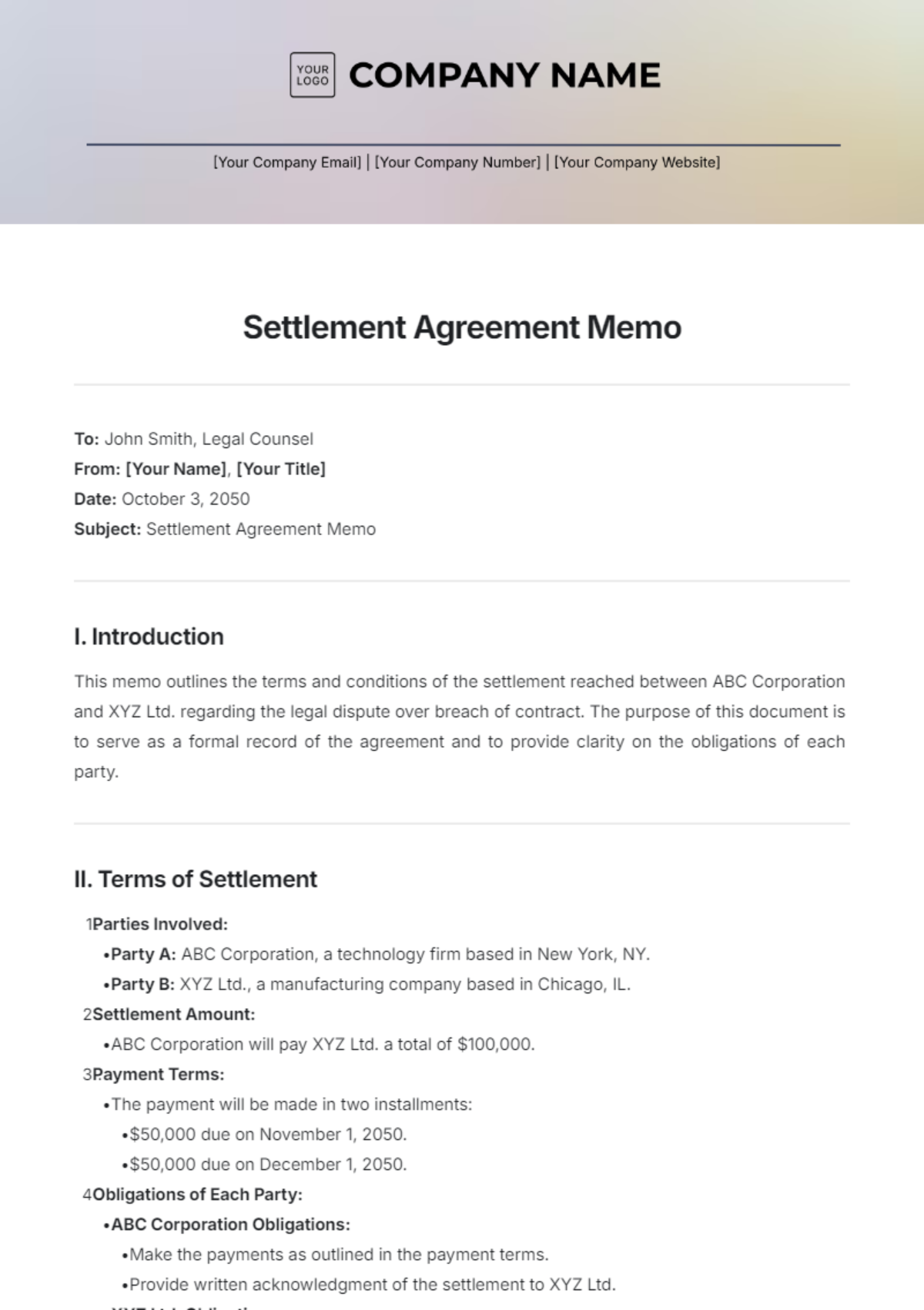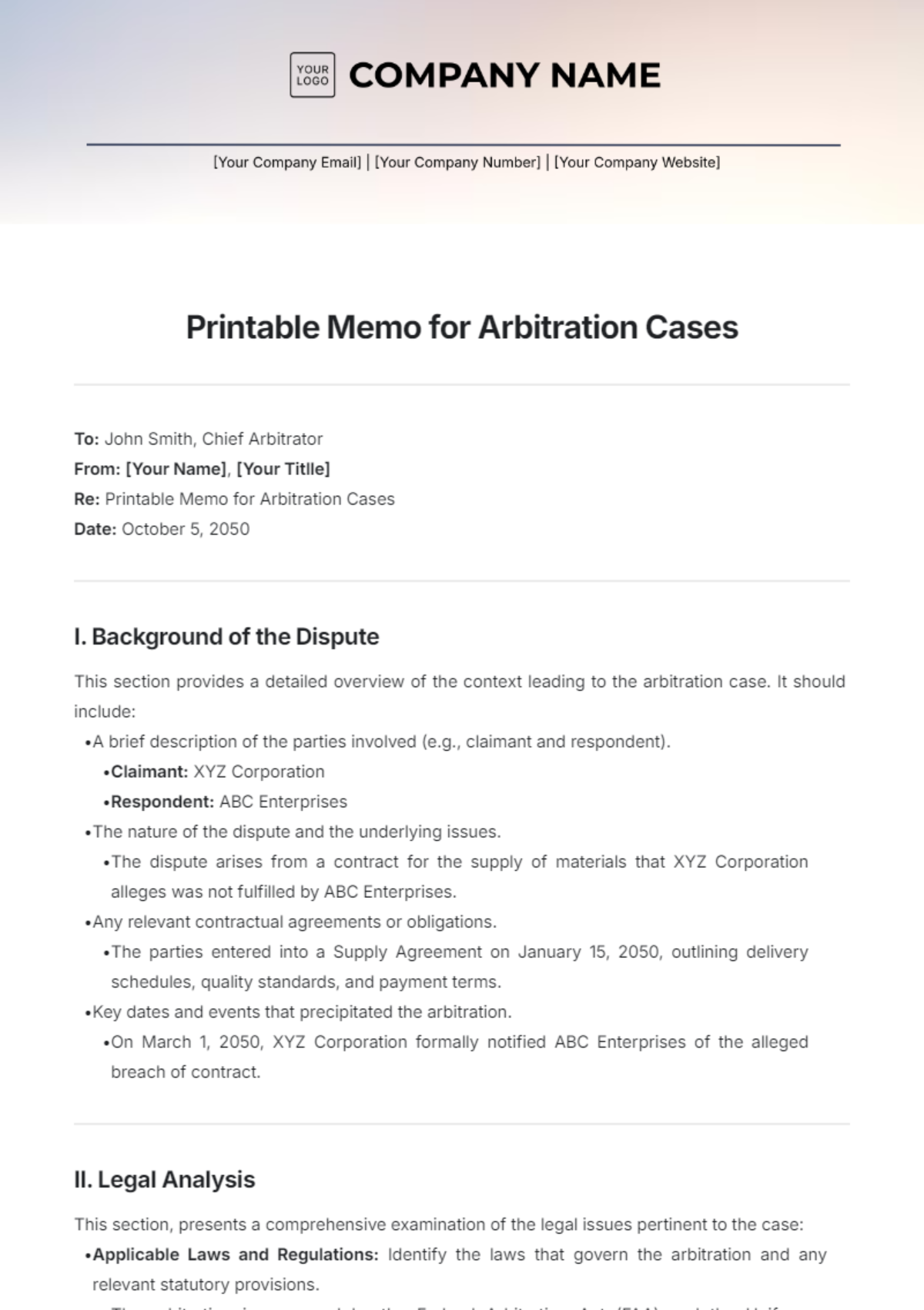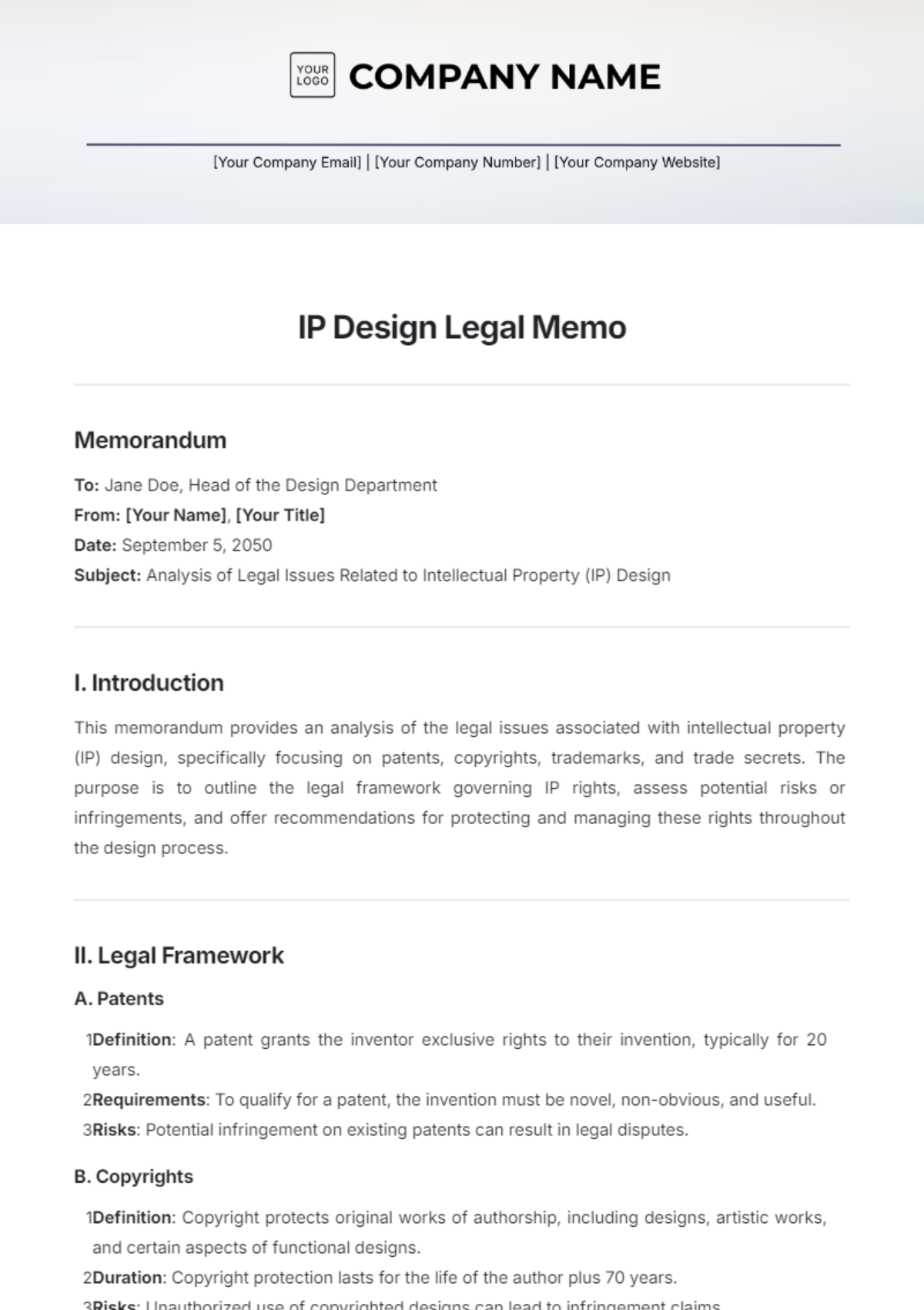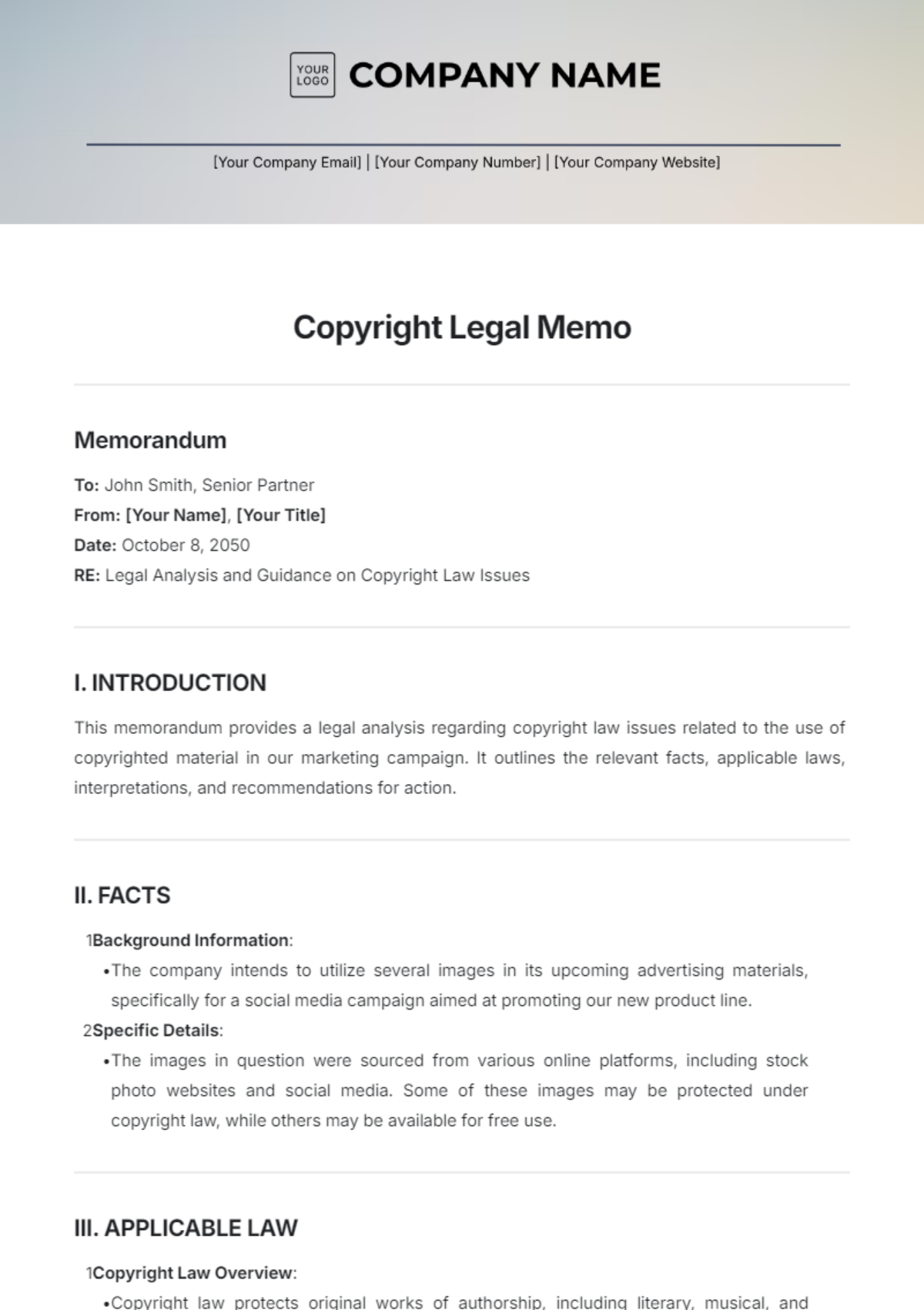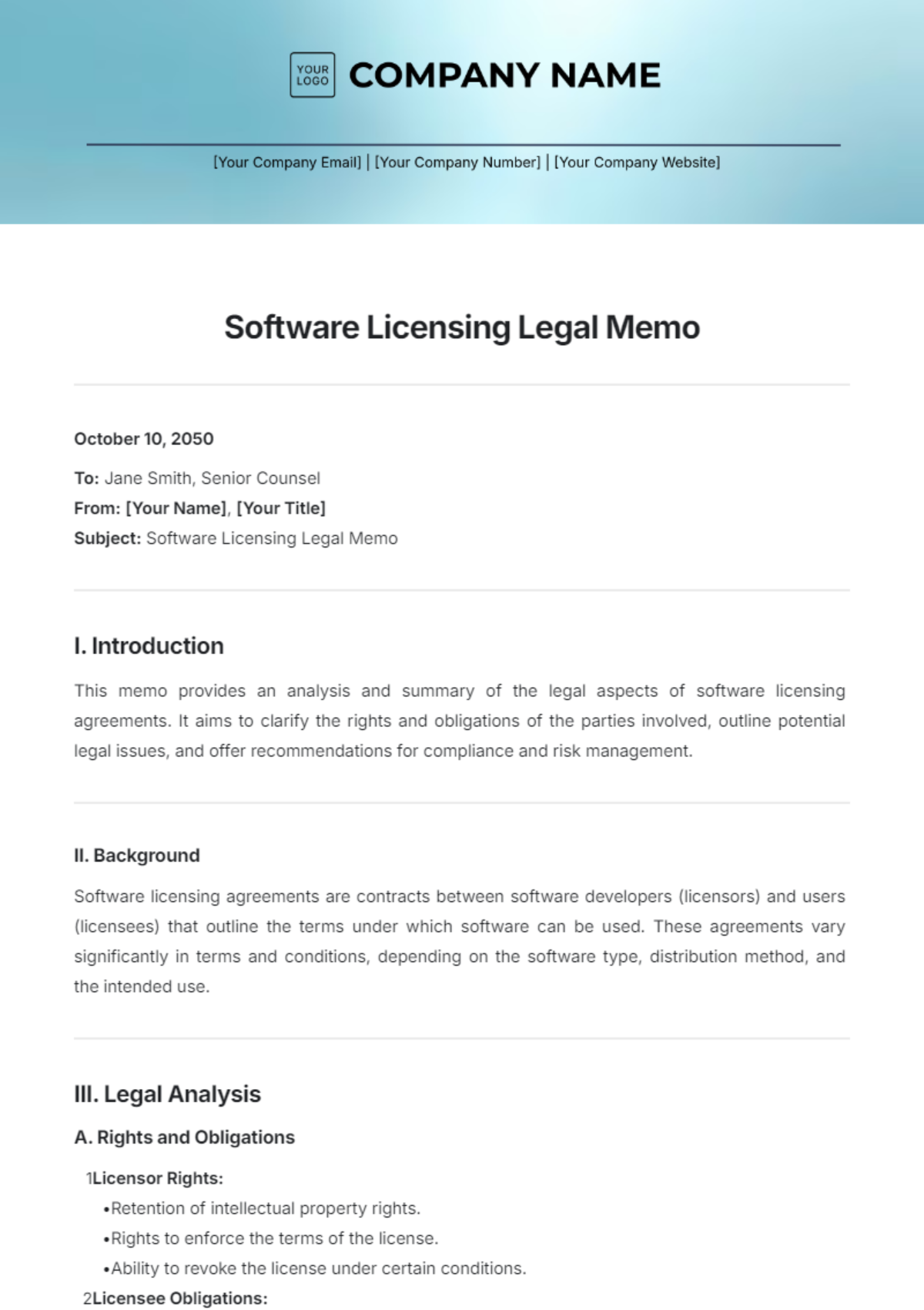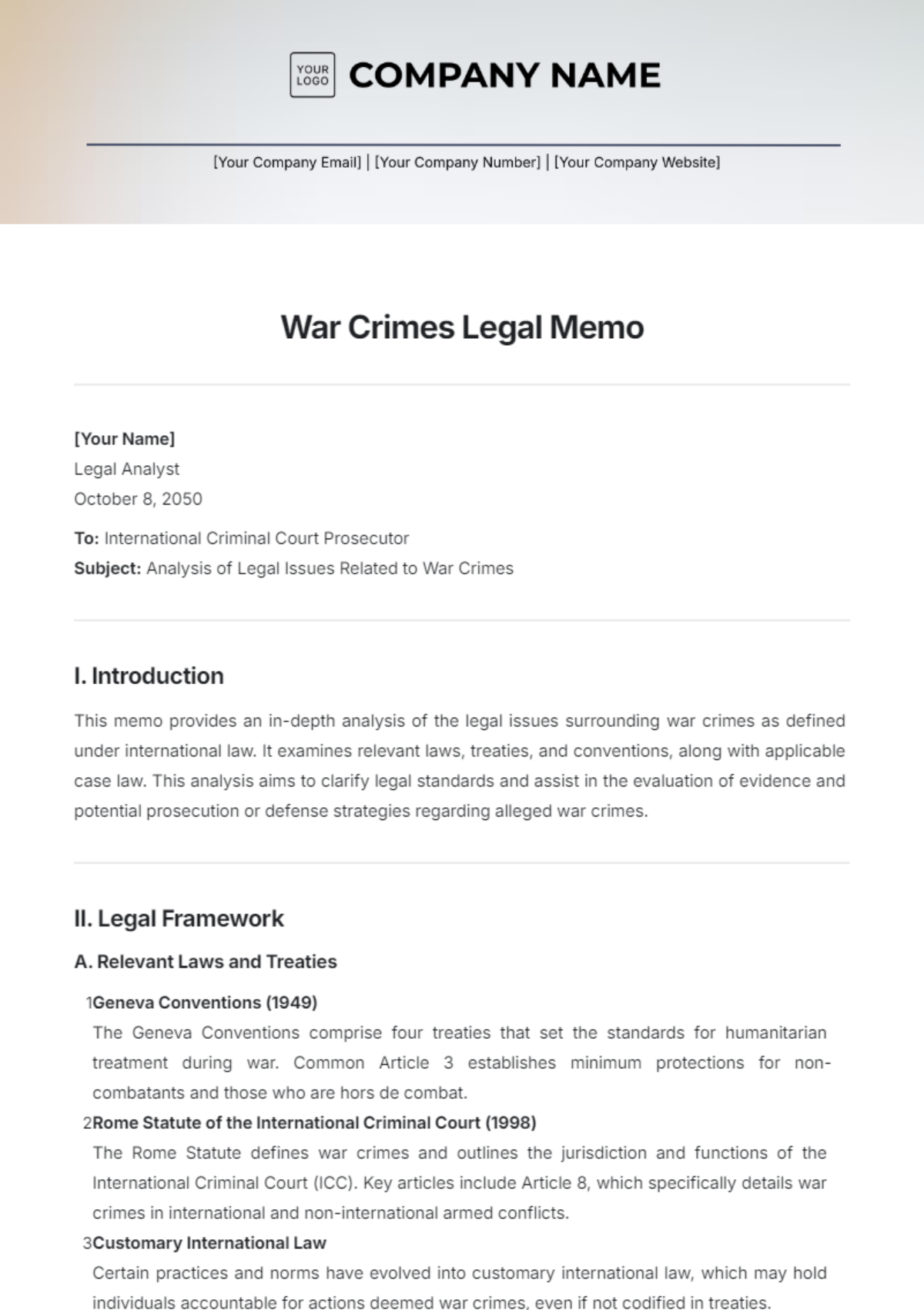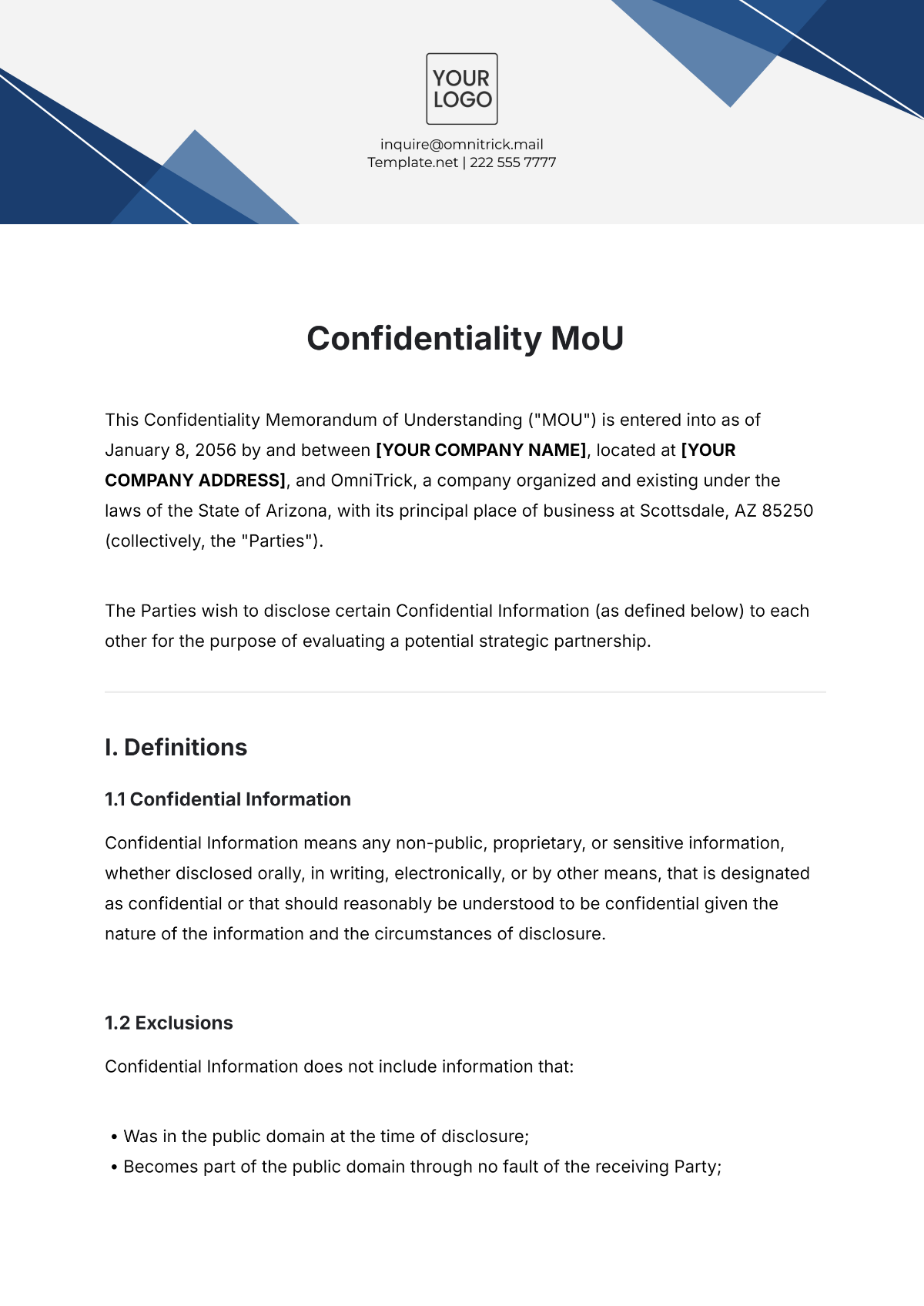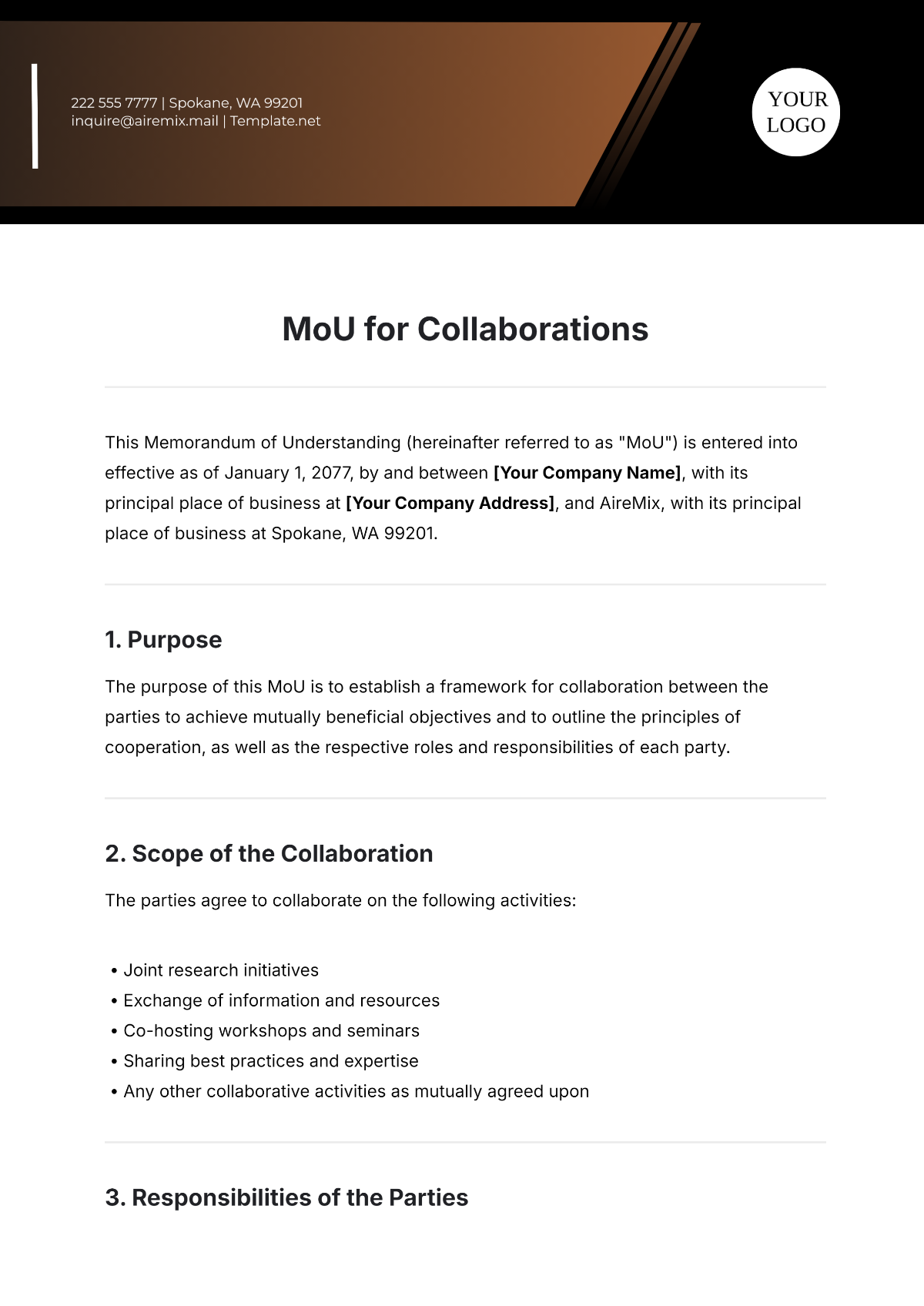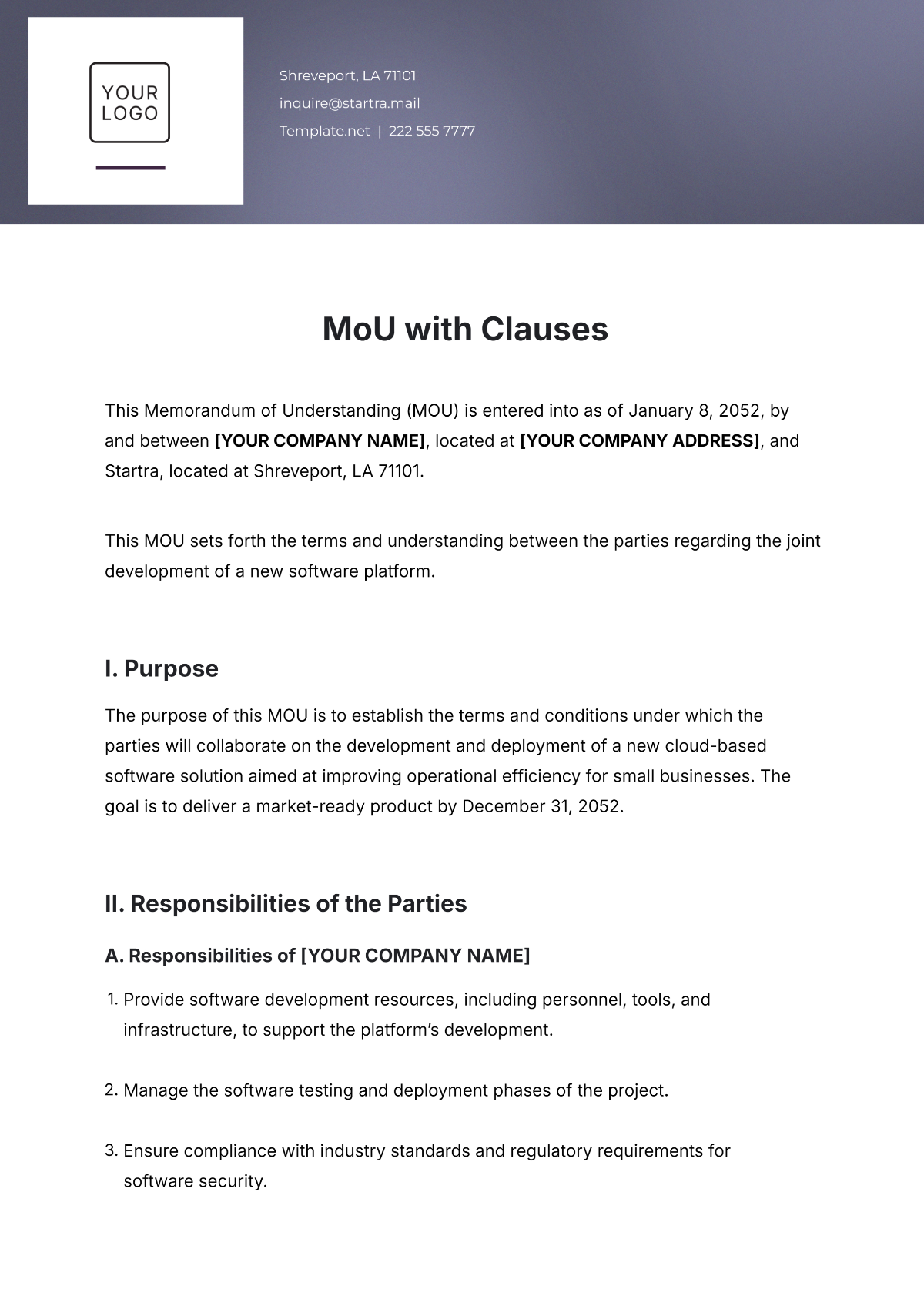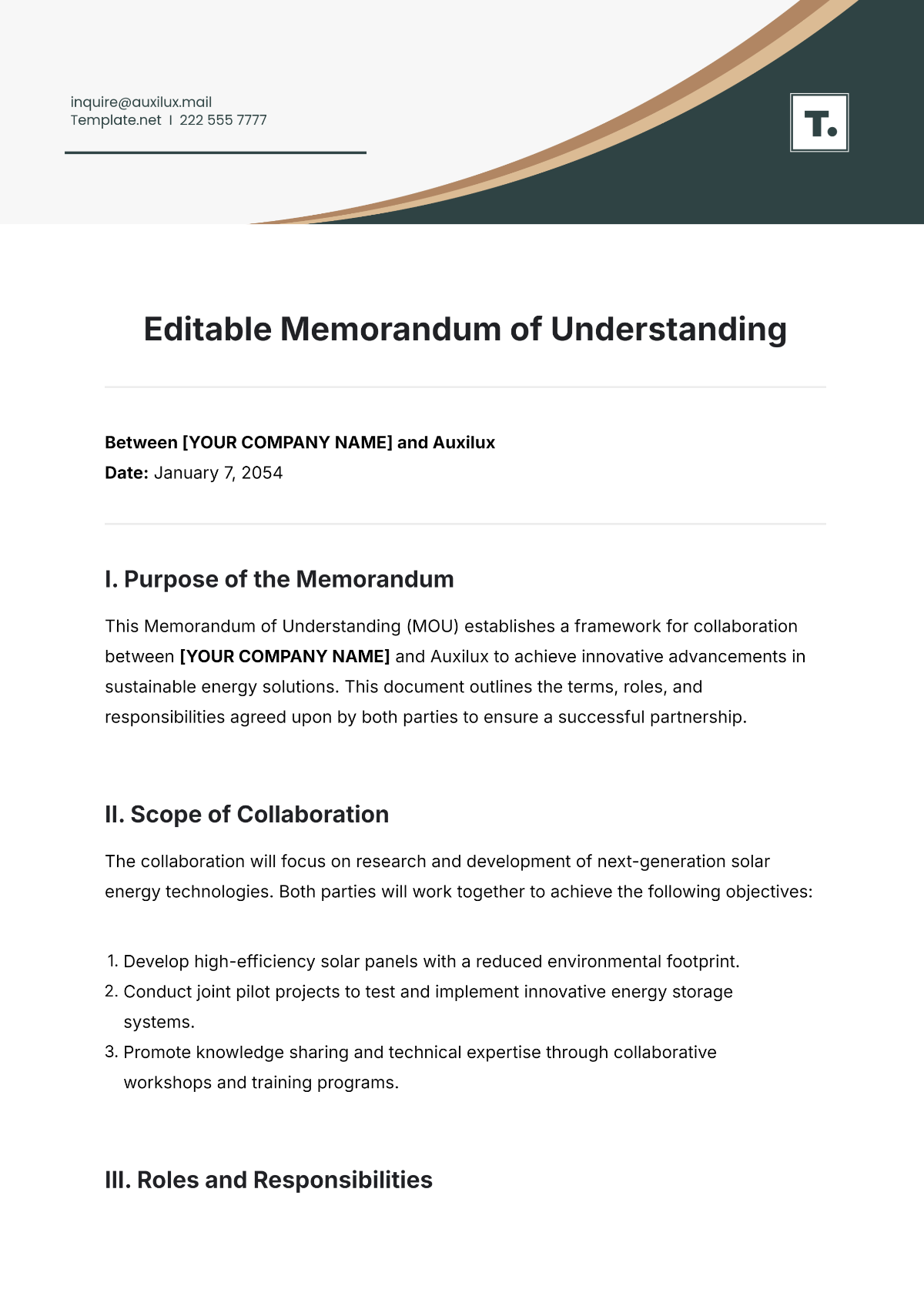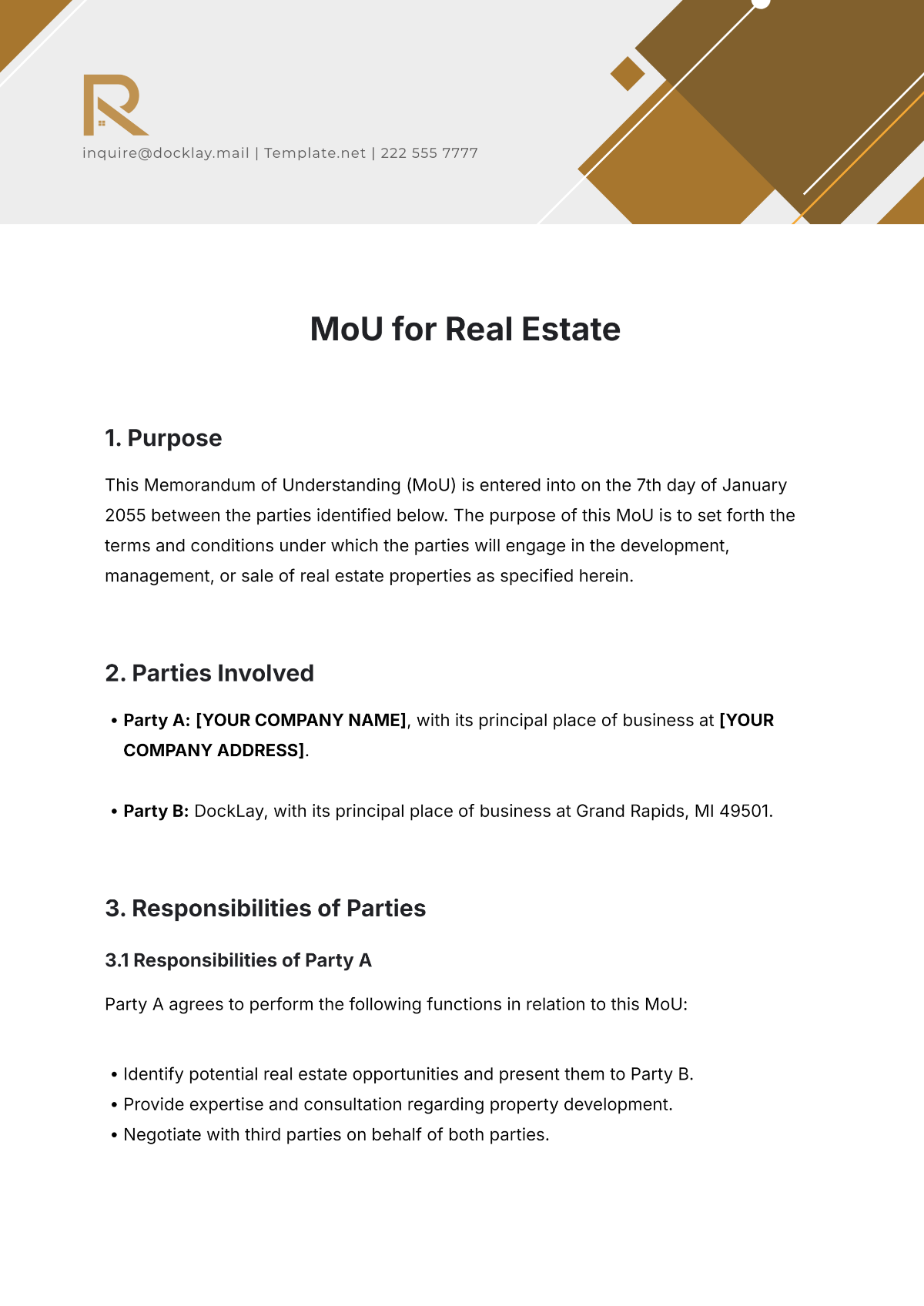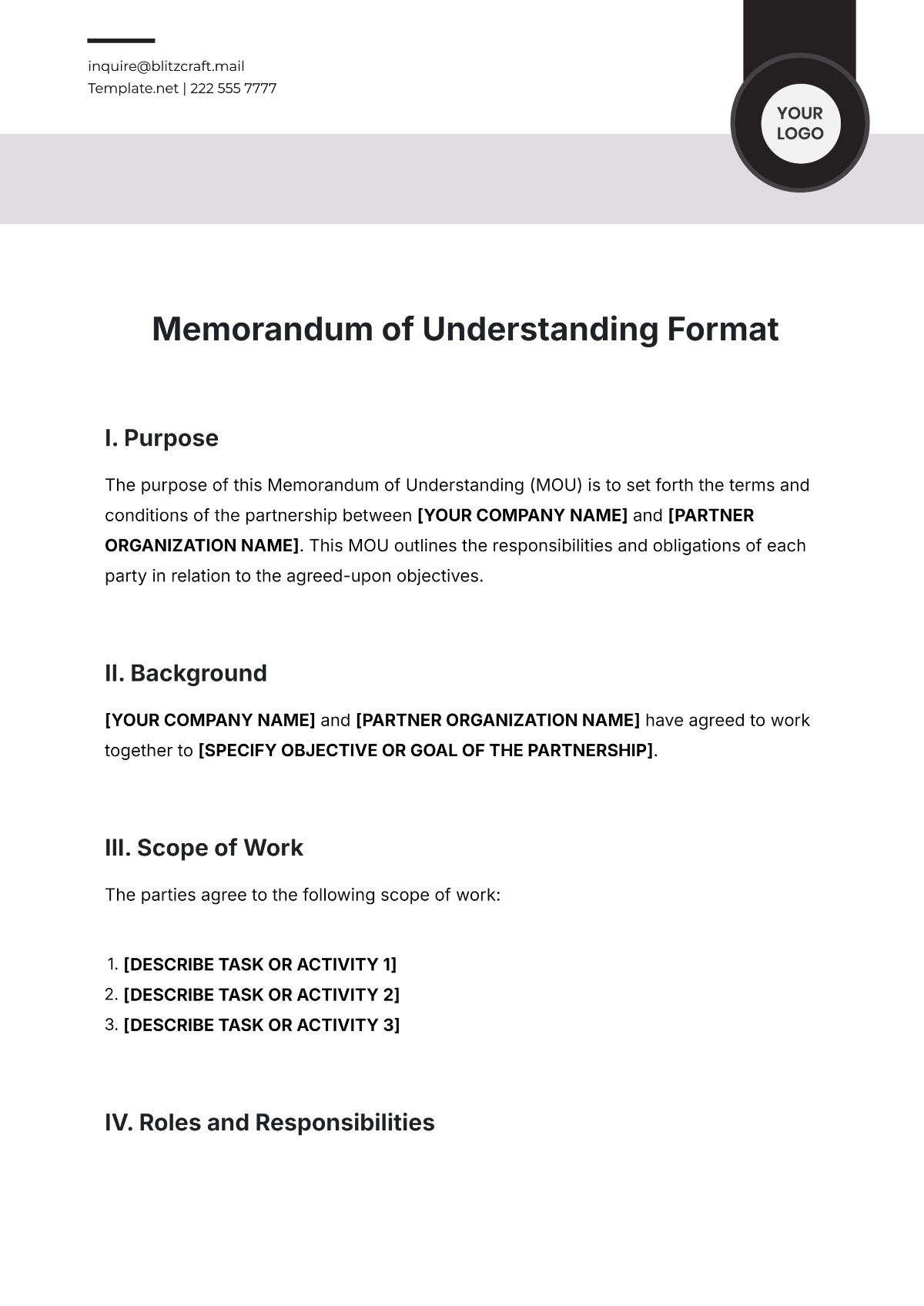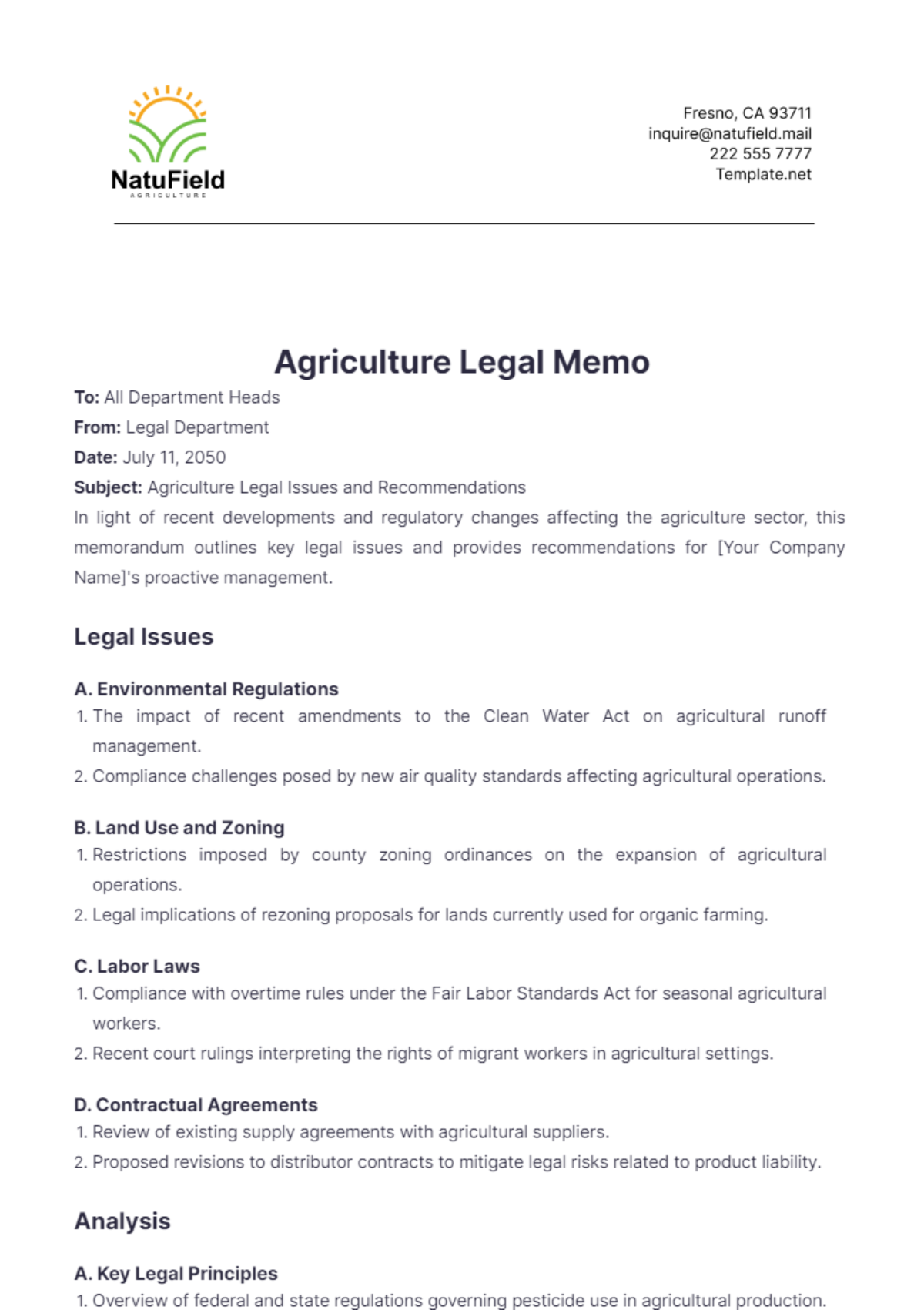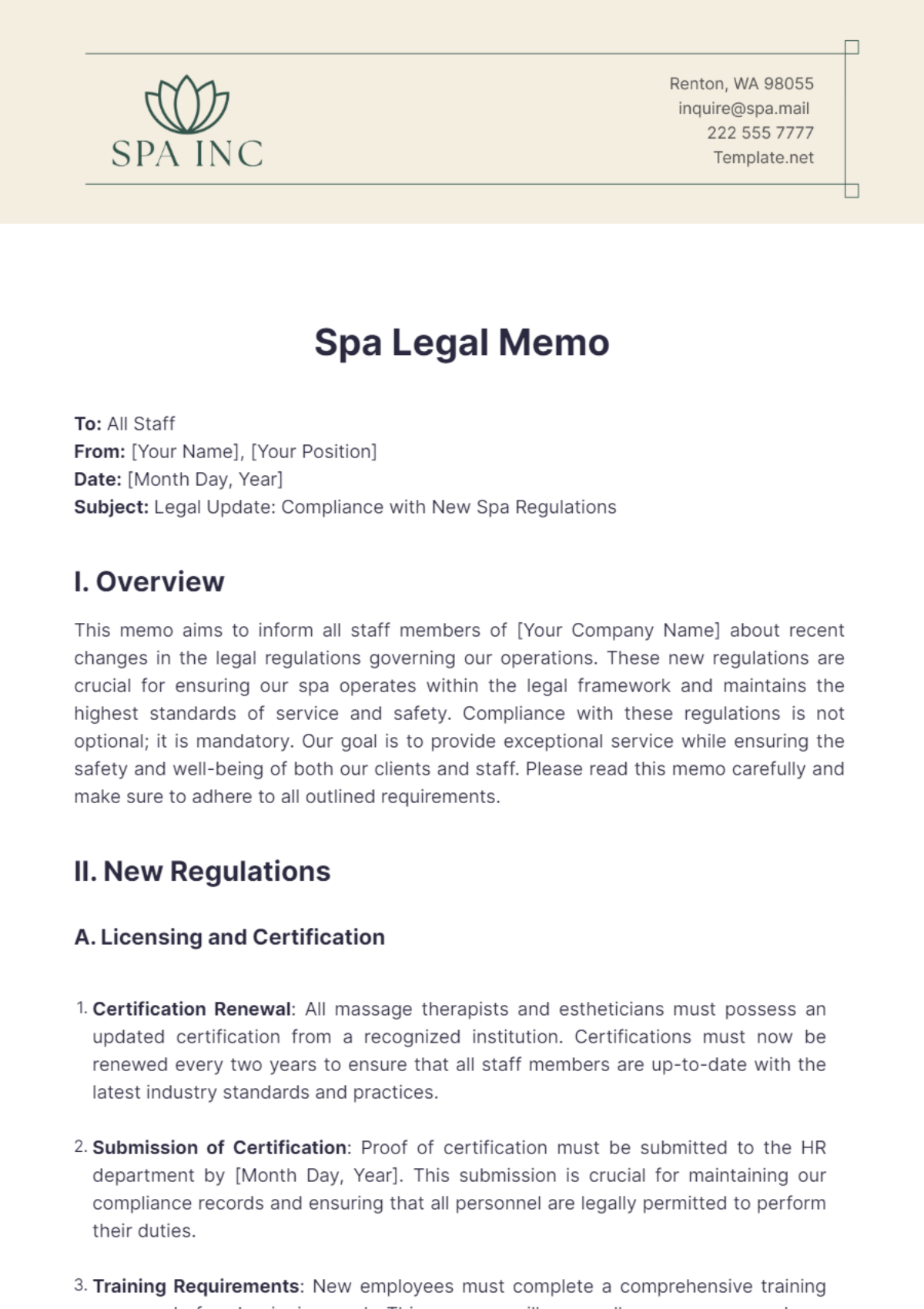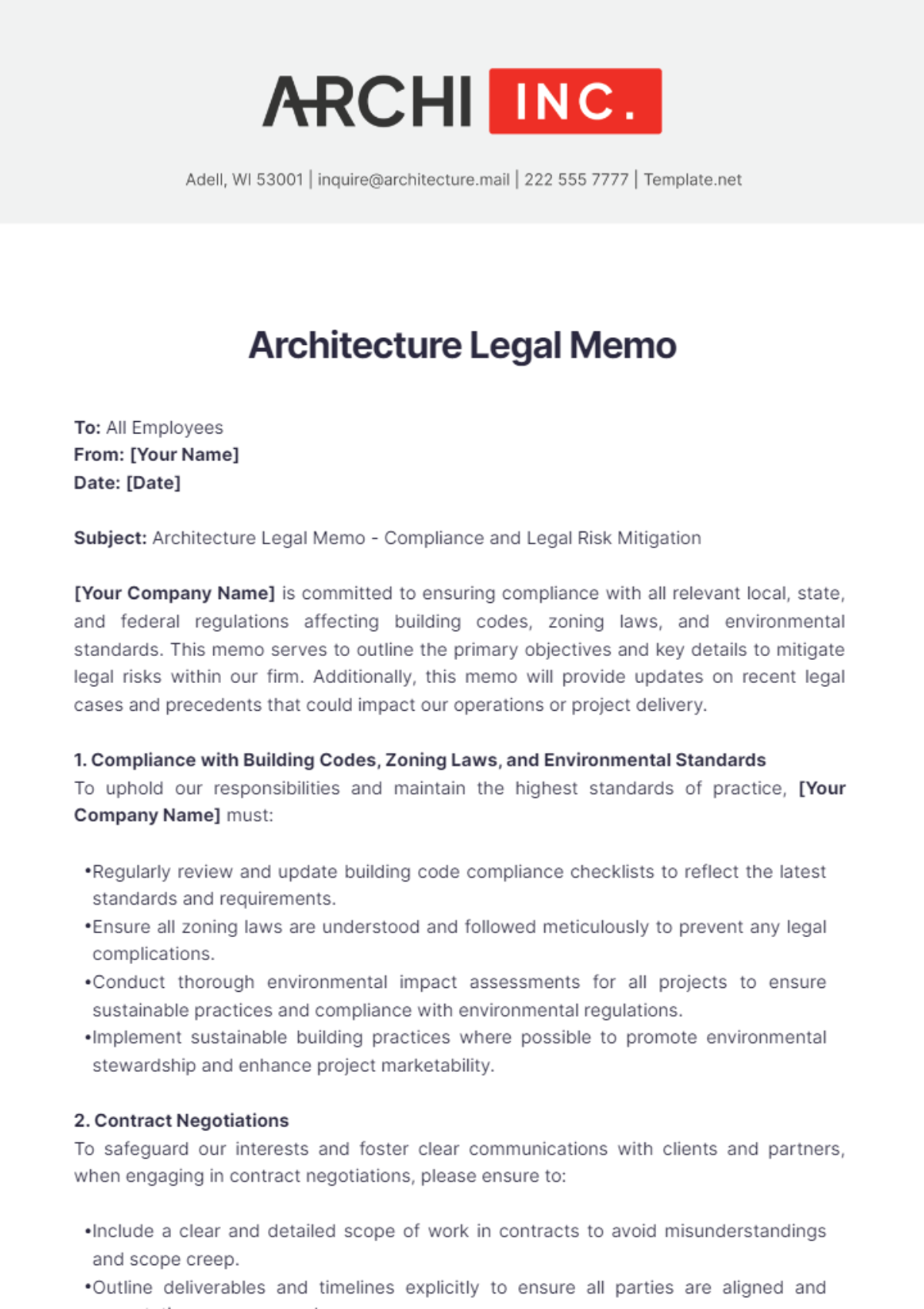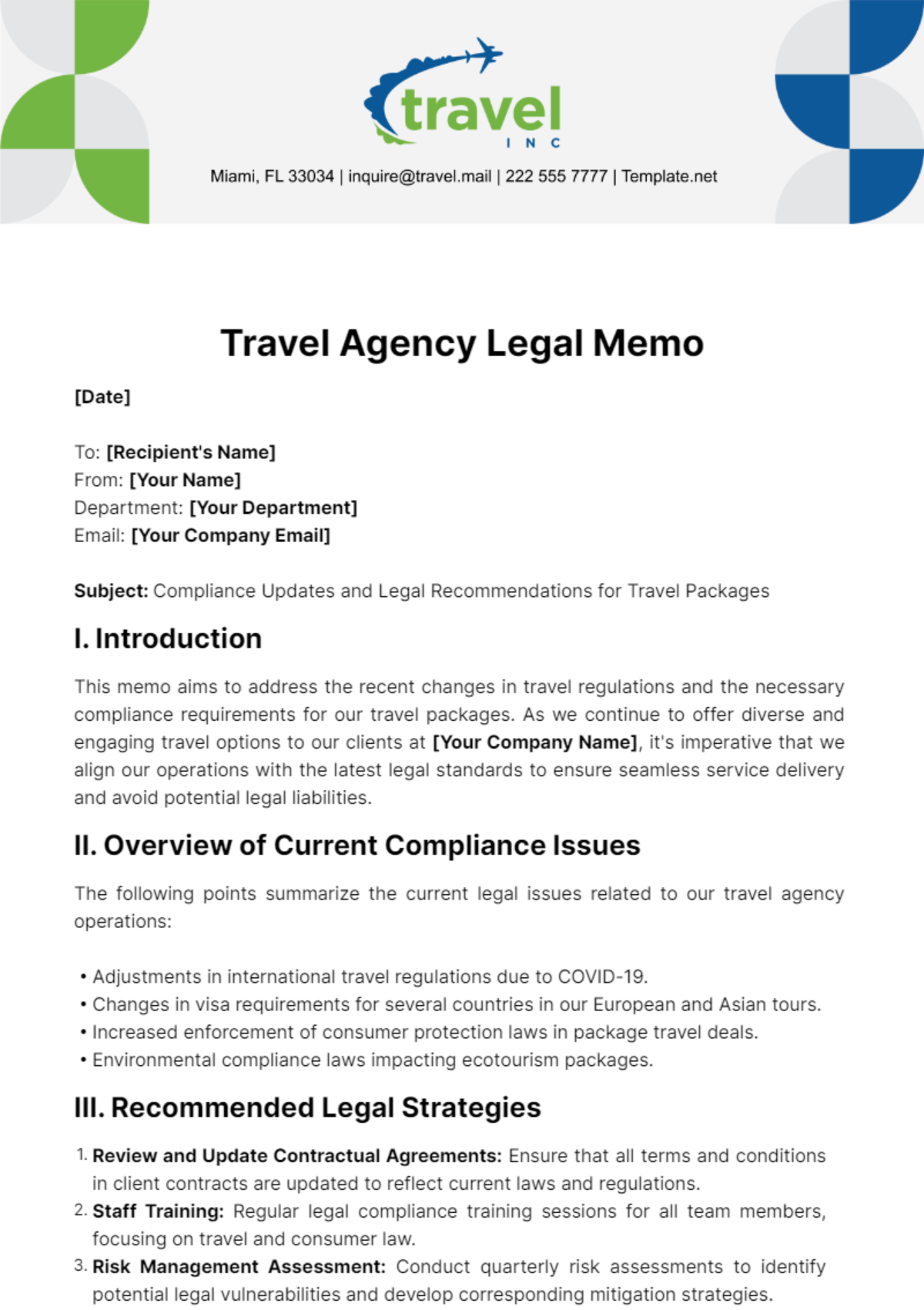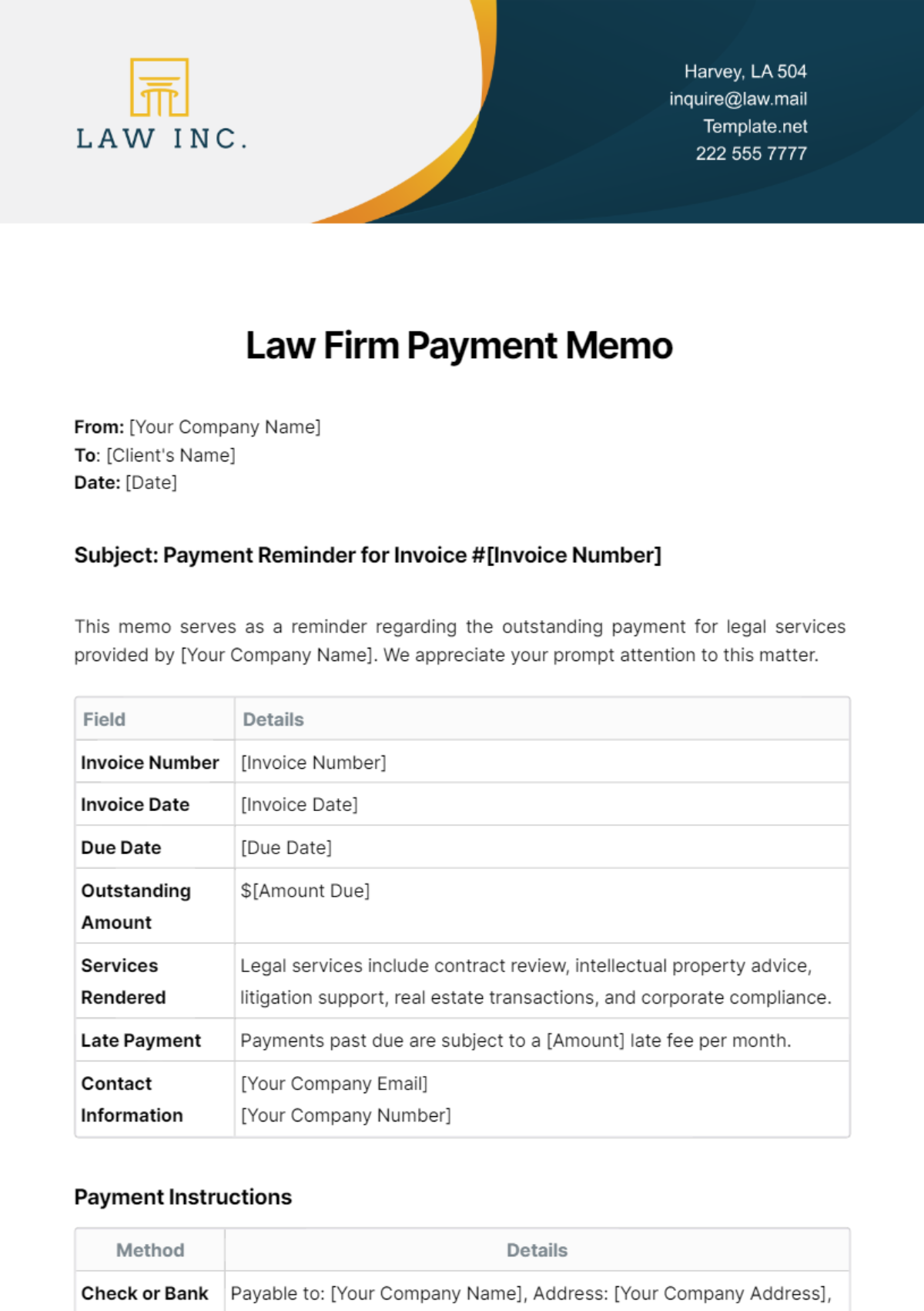Architecture Legal Memo
To: All Employees
From: [Your Name]
Date: [Date]
Subject: Architecture Legal Memo - Compliance and Legal Risk Mitigation
[Your Company Name] is committed to ensuring compliance with all relevant local, state, and federal regulations affecting building codes, zoning laws, and environmental standards. This memo serves to outline the primary objectives and key details to mitigate legal risks within our firm. Additionally, this memo will provide updates on recent legal cases and precedents that could impact our operations or project delivery.
1. Compliance with Building Codes, Zoning Laws, and Environmental Standards
To uphold our responsibilities and maintain the highest standards of practice, [Your Company Name] must:
Regularly review and update building code compliance checklists to reflect the latest standards and requirements.
Ensure all zoning laws are understood and followed meticulously to prevent any legal complications.
Conduct thorough environmental impact assessments for all projects to ensure sustainable practices and compliance with environmental regulations.
Implement sustainable building practices where possible to promote environmental stewardship and enhance project marketability.
2. Contract Negotiations
To safeguard our interests and foster clear communications with clients and partners, when engaging in contract negotiations, please ensure to:
Include a clear and detailed scope of work in contracts to avoid misunderstandings and scope creep.
Outline deliverables and timelines explicitly to ensure all parties are aligned and expectations are managed.
Ensure payment terms and conditions are unambiguous to prevent financial disputes.
Have all contracts reviewed by our legal counsel to ensure they are comprehensive and legally binding.
3. Intellectual Property Rights
To protect our designs and innovations from unauthorized use or infringement, remember to:
Register all original designs and works with the relevant intellectual property offices to secure our creative rights.
Include robust intellectual property clauses in contracts with clients and partners to protect our works across all engagements.
Regularly educate staff on intellectual property policies and practices to ensure consistent application and compliance.
4. Risk Management Strategies
To proactively address potential challenges and protect our firm, effective risk management includes:
Conducting regular risk assessments for each project to identify and mitigate potential issues early.
Maintaining appropriate insurance coverage to safeguard against unforeseen events.
Creating contingency plans for identified risks to ensure readiness for any scenario.
Providing ongoing training on risk management to all staff to cultivate a culture of awareness and preparedness.
5. Updates on Recent Legal Cases and Precedents
To keep you informed of the landscape in which we operate, recent legal developments that could impact [Your Company Name] include:
[Case Name 1]: The [Case Name 1] case revolved around a high-profile architectural firm that was challenged by local government over the firm's interpretation of urban zoning laws. The court ruled that the architectural designs did not comply with the newly revised urban zoning standards, which led to a significant redesign and delay in project completion.
This case highlights the necessity for our firm to maintain a proactive approach in monitoring and understanding local zoning laws. It serves as a reminder to engage with local planning authorities early in the design process to ensure all architectural plans are in full compliance with current zoning regulations. Regular training and updates for our design teams will be implemented to avoid similar legal challenges.
[Case Name 2]: The [Case Name 2] case involved a competitive firm that inadvertently used patented sustainable design elements in their projects, resulting in substantial legal penalties and a forced alteration of their ongoing projects. The patent covered a specific technique in sustainable building that was deemed innovative enough to warrant legal protection.
This case underlines the critical importance of conducting thorough patent searches and ensuring that all designs are original or properly licensed. It stresses the need for our industry to prioritize intellectual property rights and respect the innovations of others by integrating rigorous intellectual property checks into our standard operational procedures. This will safeguard our firm against potential legal infringements and encourage a culture of innovation and respect for intellectual property.
[Case Name 3]: In The [Case Name 3] case, a firm faced regulatory action due to non-compliance with international environmental standards in their overseas projects. This resulted in hefty fines and the requirement to implement costly environmental compliance measures retroactively.
This ruling emphasizes the importance for our firm to stay updated with global environmental standards, especially as we expand into international markets. It necessitates the integration of an environmental compliance strategy into our project planning phases and the continuous education of our team on international environmental laws. Additionally, this case suggests that our compliance department should develop a checklist and audit process for environmental standards to ensure all projects meet necessary regulations, mitigating risks of legal and financial repercussions.
6. Training and Refreshing Staff on Legal Practices
To ensure our team remains knowledgeable and compliant with all legal requirements, it is essential to:
Conduct regular training sessions on compliance and legal updates to keep everyone informed and engaged.
Develop a robust onboarding program for new hires that includes a comprehensive overview of our legal obligations and standards.
Make legal resources and documentation easily accessible to all staff to support ongoing education and compliance.
Encourage an open-door policy for legal consultations to ensure staff feel supported and informed in their daily operations.
For any queries or further clarification, please contact [Your Name] at [Your Company Email].
Thank you,
[Your Name]
[Your Job Title]
[Your Company Name]
